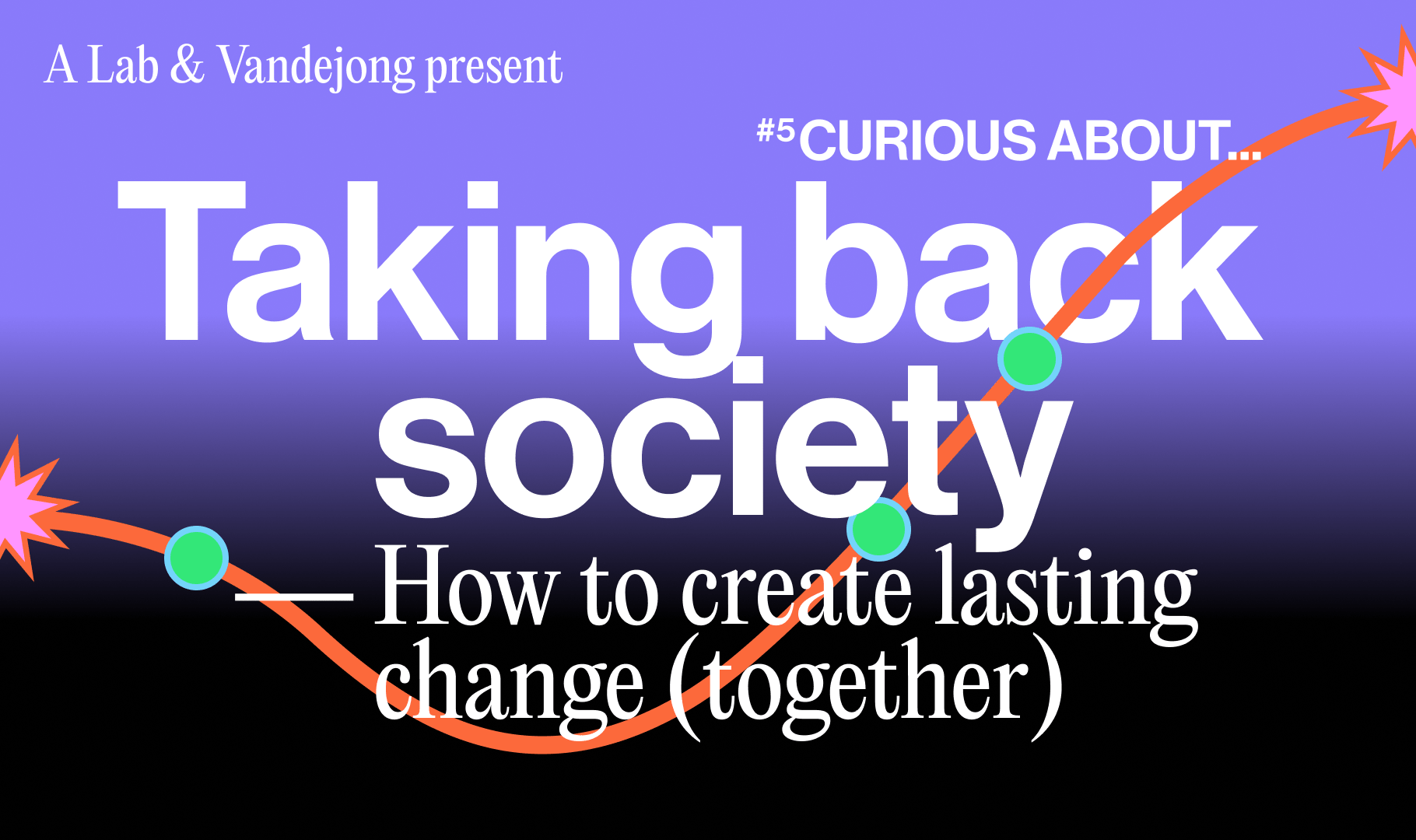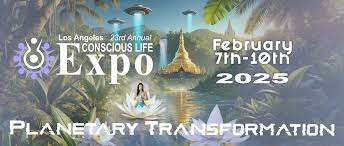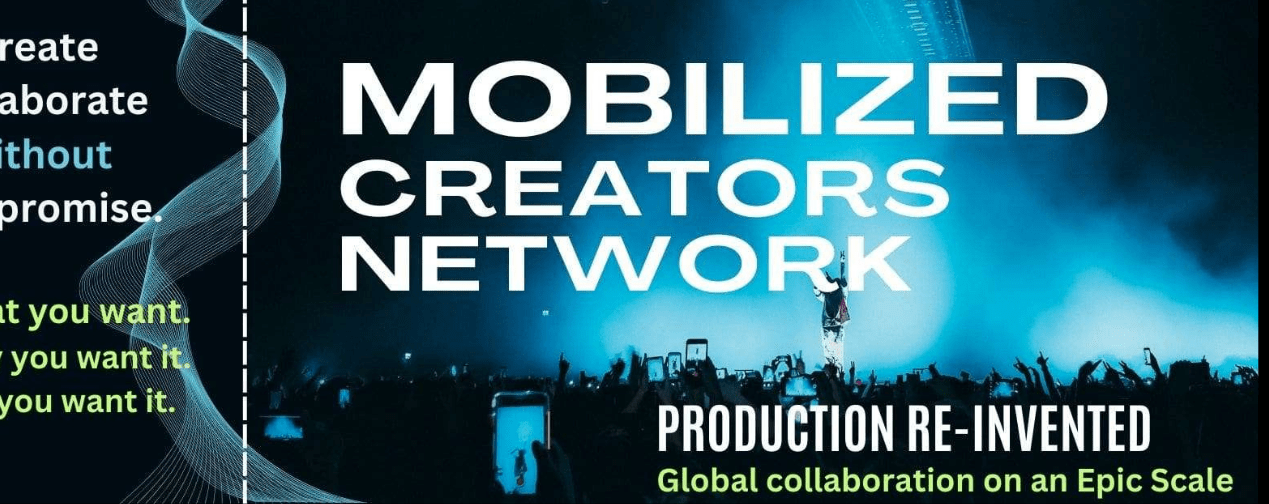Commentary
Can the future of filmmaking put the writer in control?

 Michael Caporale has spent an entire life behind the lens of a camera. So, it is with over fifty years practicing his craft, that we have chosen to interview him regarding the introduction of the AI program SORA, and what it will mean to the production community and audiences alike.
Michael Caporale has spent an entire life behind the lens of a camera. So, it is with over fifty years practicing his craft, that we have chosen to interview him regarding the introduction of the AI program SORA, and what it will mean to the production community and audiences alike.
Michael earned a B.F.A. from Syracuse University in 1971 while also studying Photography at their Newhouse school of Journalism. He went on to attain a Masters in Fine Arts in 1973 from the University of Illinois studying painting and photography.
Whether as a Director of feature films, or as a Panasonic consultant training National Geographic as they transitioned from film to HD, or the many other companies such as Lockheed Martin, Versus, the Director’s Guild of New Zealand and the Democratic National Convention of 2008, he has left his mark on the medium. Michael made the first ever feature film shot on a VariCam in 2001 and travelled from Anchorage to Nome filming the Iditarod for Panasonic in 2005. In 1989 he created the first all-digital edit facility in the Midwest, “Finis,” and was instrumental in the development of AVID, the first Apple MacIntosh edit system. He has authored seventeen screenplays, three novels, three biographies, two cookbooks, a book on politics and one on filmmaking. His varied experience in the arts qualifies him to speak on the subject of AI and the future of filmmaking.
Steven Jay: Sometime around the beginning of the 20th century, the motion picture and the first motion picture studio was created in West Orange, New Jersey by Thomas Edison. The studio was a house on train wheels. To use the sun as lighting, the house would be pushed along a circular train track and the roof of the house would be open and aligned with the position of the sun. This was the earliest stage for filmmaking. There was no sound. It was very, very cumbersome, very difficult and very costly to make those movies.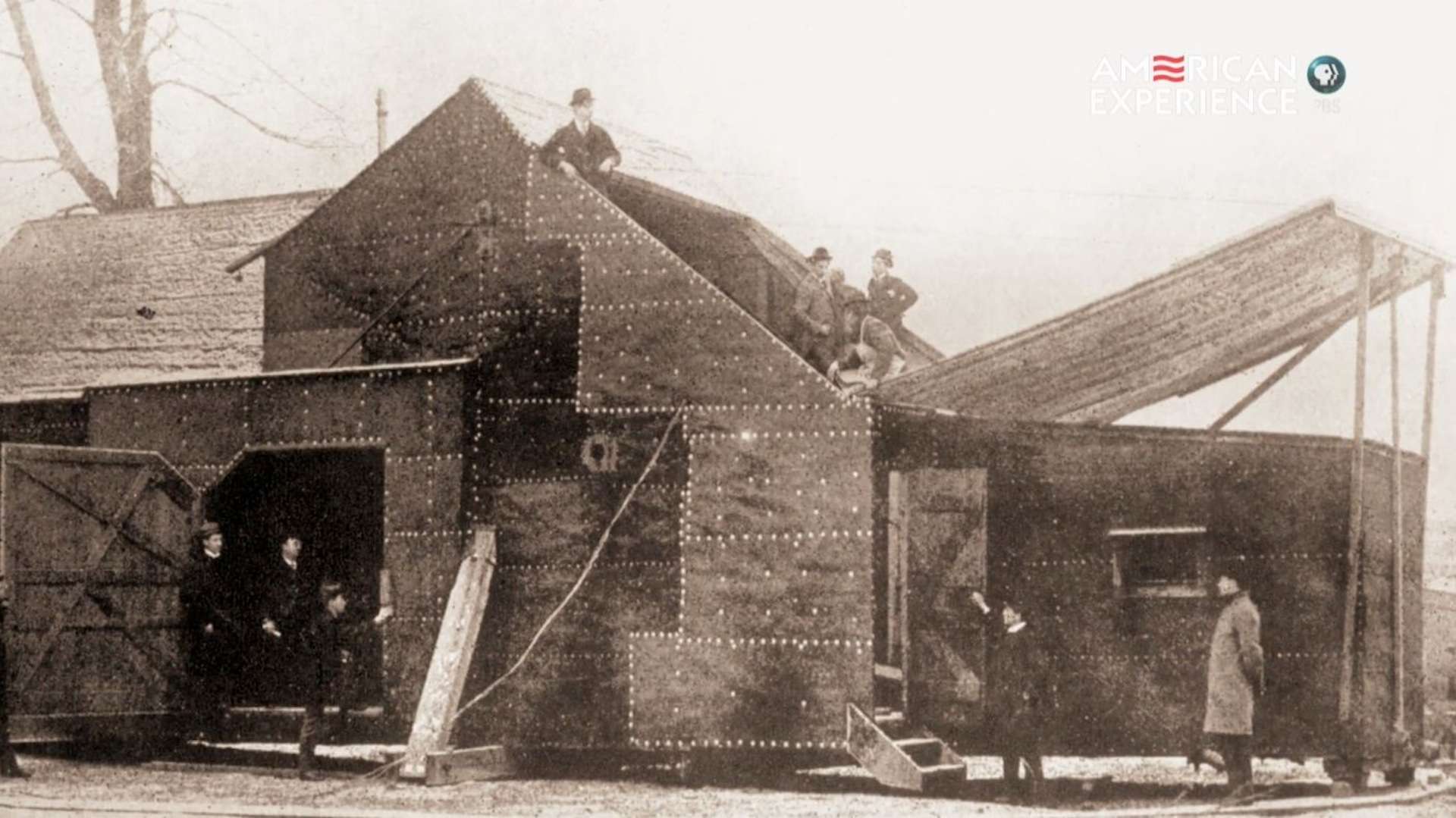
Years later, movie production relocated to California, where it was sunny most of the time, not just four to six months of the year. Now we fast forward to today. The year is 2024. Motion pictures, have transformed considerably. Tools and technologies exist that our forefathers never could have imagined and the AI revolution has people panicking, scared of losing their jobs, or opening a new window of incredible opportunities.
Michael, I understand that you were inspired by a story regarding a newest AI technology called SORA and comments by the actor, Ashton Kutcher praising it as a game changer.
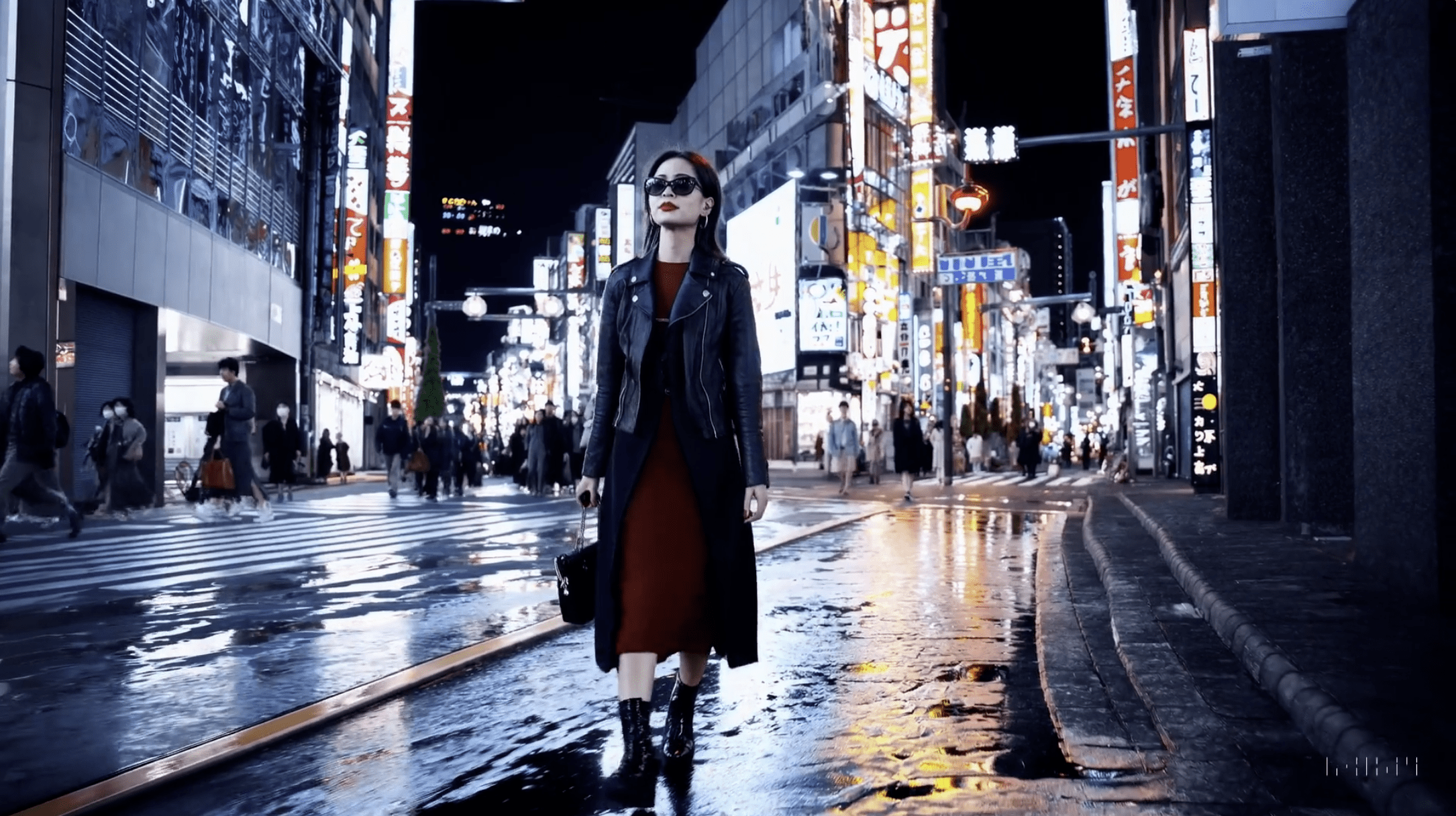 We’re calling on you, due to your extensive background, to elaborate on what this means for the future of filmmaking and the production process.
We’re calling on you, due to your extensive background, to elaborate on what this means for the future of filmmaking and the production process.
Michael Caporale: On a previous day, you and I were discussing Sora because of statements that, or press releases, or whatever… that Ashton Kutcher had made, after viewing several small clips of imaginative little shorts that Sora had created, scenes that were virtually impossible to film in the physical world… and predicting, Ashton was predicting that soon Sora would be able to make entire feature films.
Now, that’s where it stirs up a big controversy for filmmakers, because filmmakers will be saying to themselves, and many are, “What happens to my job?
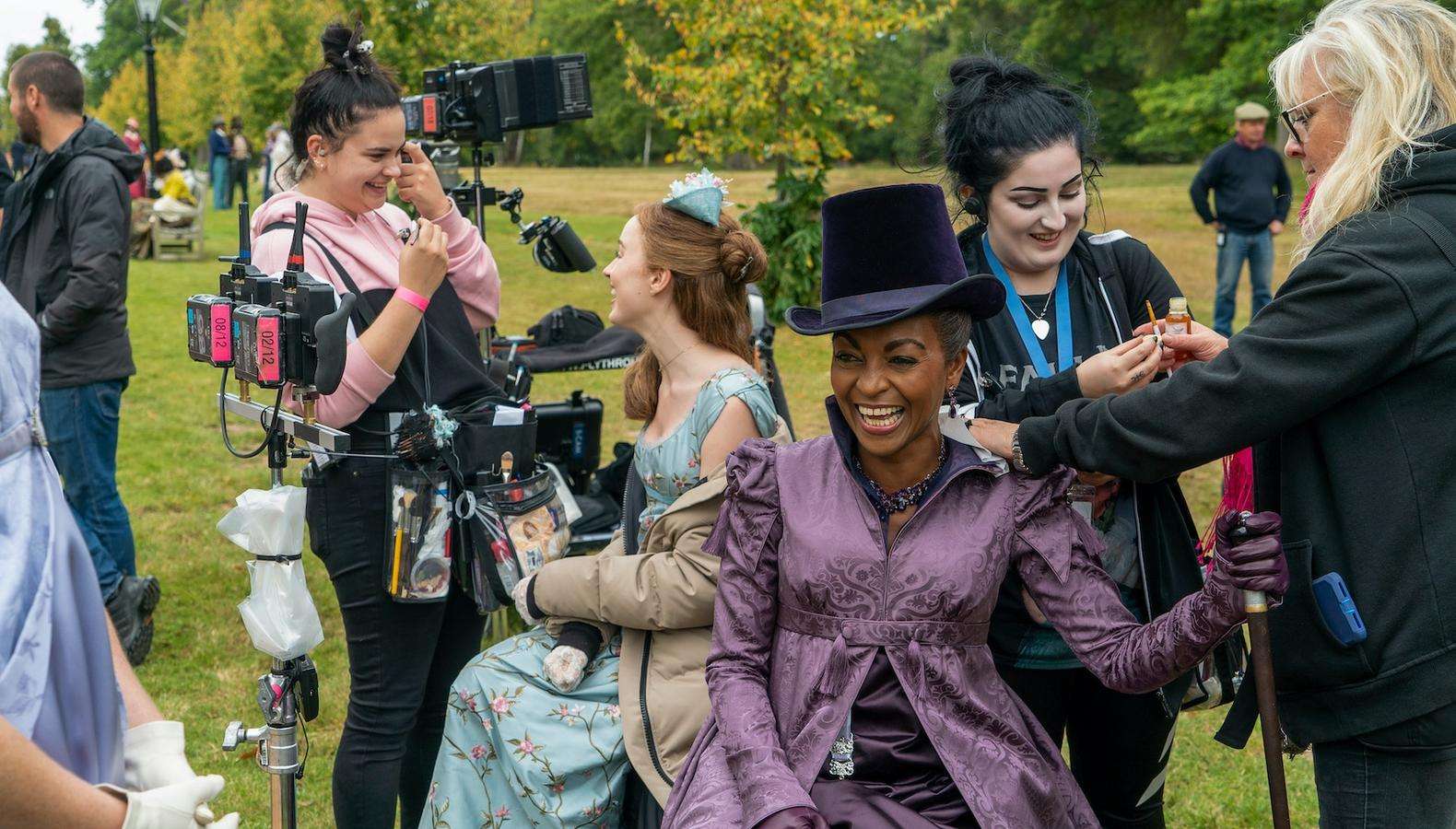 I’m an actor, you don’t need me anymore? I’m a director, I’m a sound man, I’m a composer, I’m a producer.” Whatever. “I’m a prop person, I’m a wardrobe person, I’m a caterer.” What happens to all those jobs? And what’s gonna happen with Sora as it’s adopted by independents and large studios alike, is just like other technological revolutions where the old world continues to exist for a period of time as it migrates to the new world. It’s never gonna go away.
I’m an actor, you don’t need me anymore? I’m a director, I’m a sound man, I’m a composer, I’m a producer.” Whatever. “I’m a prop person, I’m a wardrobe person, I’m a caterer.” What happens to all those jobs? And what’s gonna happen with Sora as it’s adopted by independents and large studios alike, is just like other technological revolutions where the old world continues to exist for a period of time as it migrates to the new world. It’s never gonna go away.
We still have craft. We still have people that hand make furniture when we have factories that do it easily.

Hands of craftsman carve with a gouge in the hands on the workbench in carpentry
You can still buy a handmade Martin D45 deluxe custom guitar for $21,000. But you can get a factory-made one, exactly the same, in China for around $300.
These things will continue to exist for a while, while there’s a transition, but ultimately, just like the automobile replaced the horse drawn carriage and the horse as a method of transportation, the job for street cleaners that went around shoveling up horse shit is gone.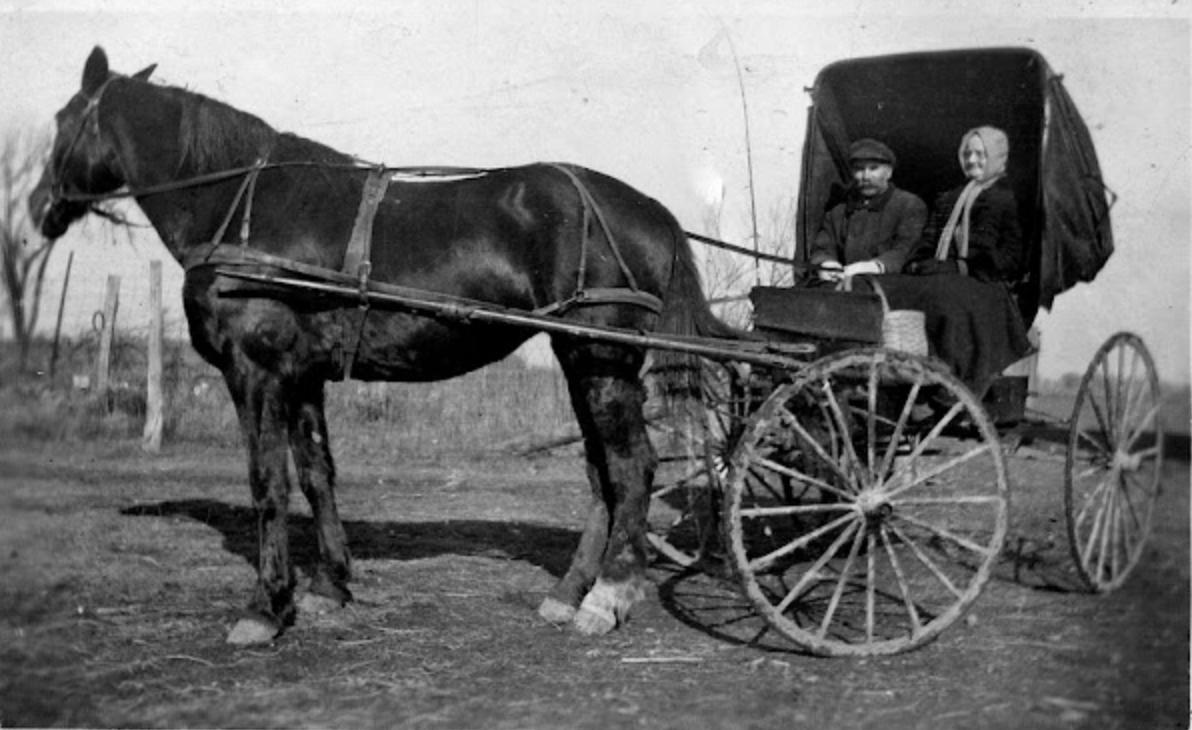
The job for stables that house the horses in between their duties in commuting travelers… all those stables and barns are gone.Yet, we still have horses, but horseback riding is a hobby. It’s a pastime, a joy to be able to go to a stable and ride a horse. So, you wanna own a horse? You either have to have a farm or you have to be very wealthy and have somebody else take care of the horse. The horse that didn’t go away, the shit shovelers did.
And what’s gonna happen to film production is, eventually as films become more easily done by independents, the studio system is gonna have to give way, because anybody will be able to create a movie in its entirety and be on an equal footing with the studios.
Now, I wanna take a look back and use art history, my own sort of simplistic version of art history, if you’ll permit me, as an analogy.
Look at the changes in the technology and what this meant, and what happened historically for art as a sort of an analogy for what Sora is going to do to the film industry.
So, we can go back thousands of years and we can talk about… there were cave painting, but those cave paintings in France were still stories and they were recording the hunt. So the very first art that we can identify was storytelling, and we can fast forward to the Egyptians who used pictorial, pictographs, whatever you wanna call them, and Native American tribes who were writing, drawing on stone in the ie of mountians. You can go to Moab, Utah and see the “Newspaper Rock” there and all of the storytelling that occurred throughout. It has occurred historically in many, many forms.
 But Western art from the time of Jesus and the Romans from One AD, had a heavy emphasis on religious iconography.
But Western art from the time of Jesus and the Romans from One AD, had a heavy emphasis on religious iconography.
That was the story and it was used by the church as a way to propagandize and indoctrinate the people in a belief system that sustained the growth of the church and supported the church and its endeavors. Many of which were wrong, many of which were actually evil but that’s not the point. Religious art was used to teach, tell these stories and keep the members of the church in the fold.
Eventually that gave way to “History” as a subject matter. Actually, that gave way to historical painting and art was something that was used by the very wealthy to memorialize themselves historically.
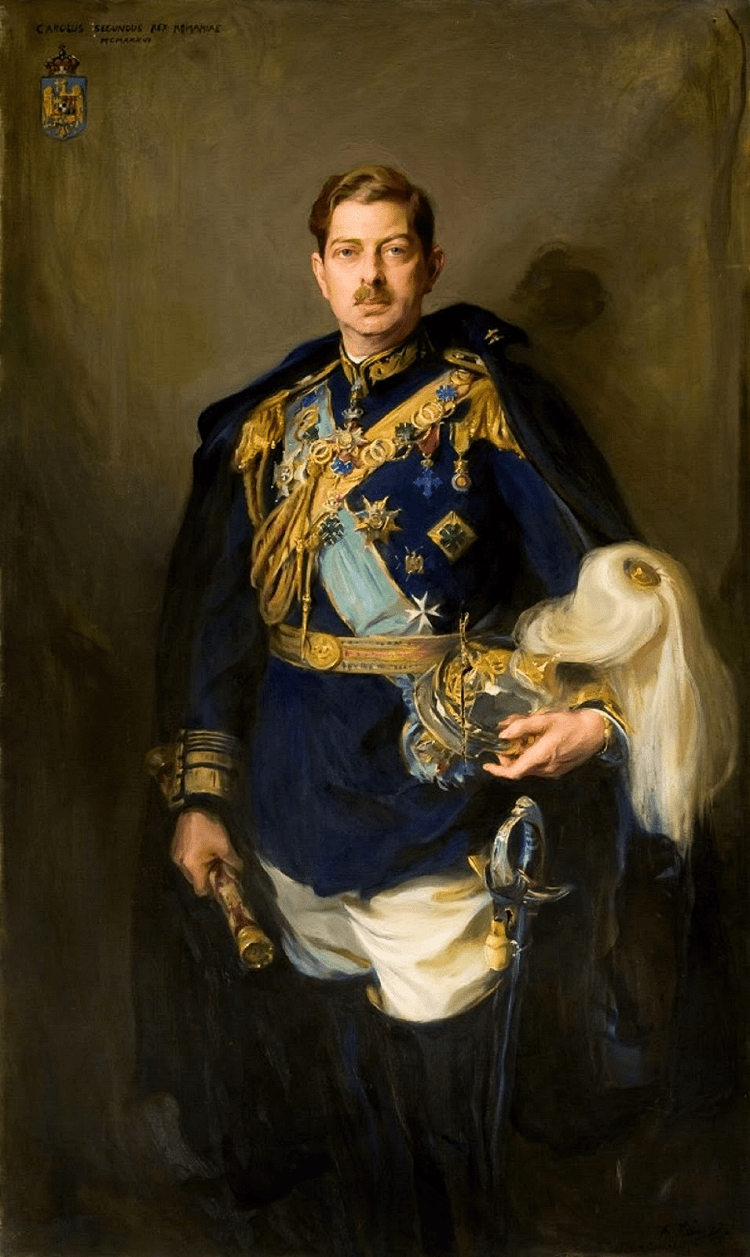 Photography did not exist… and so skilled artists were employed on commission to paint pictures of wealthy people which filled the museums in Italy and Russia and all over the world and that also developed into historical paintings, scenes of battle, scenes of great events, the signing of the Declaration of Independence, so on and so forth, or the creation of the Constitution. Historical events were documented in painting. And so, they were all derivates of “realism,” landscapes, seascapes, historical events etc….
Photography did not exist… and so skilled artists were employed on commission to paint pictures of wealthy people which filled the museums in Italy and Russia and all over the world and that also developed into historical paintings, scenes of battle, scenes of great events, the signing of the Declaration of Independence, so on and so forth, or the creation of the Constitution. Historical events were documented in painting. And so, they were all derivates of “realism,” landscapes, seascapes, historical events etc….
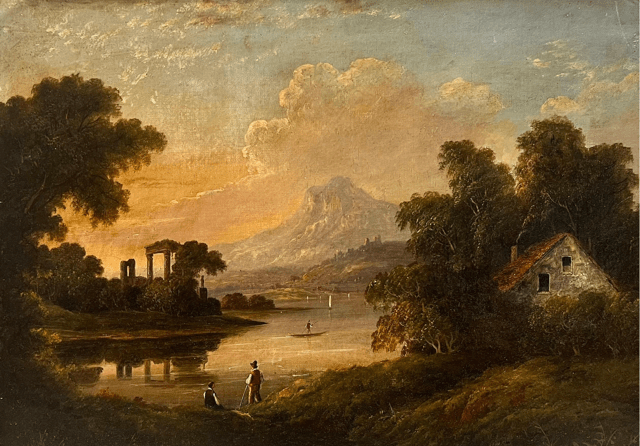 but there was also allegory and there were hidden meanings in paintings that were done as disguised forms of social or political protest, much like the writings of Charles Dickens, Jonathan Swift or Lewis Carroll.
but there was also allegory and there were hidden meanings in paintings that were done as disguised forms of social or political protest, much like the writings of Charles Dickens, Jonathan Swift or Lewis Carroll.
But eventually what happened was painting styles started to expand and there were artists like Rembrandt who used a much looser style whose brush strokes were not as “ smooth and polished.” And you can go up to a Rembrandt painting and you can see that it’s not at all like the previous paintings that in some senses I hesitate to use the word, it was cruder in it’s execution, although very sophisticated and consequential.
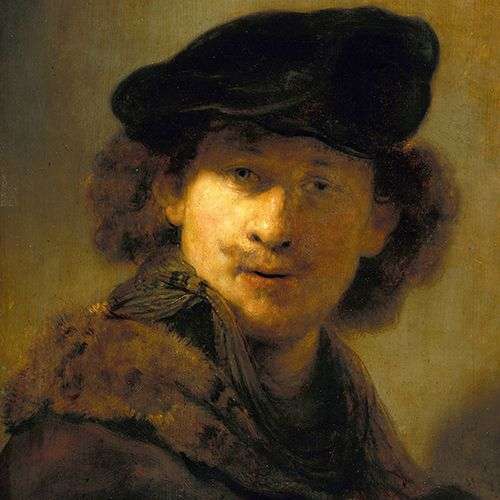 And at a little bit of a distance, your eye would merge all of those brush strokes and see it as a different, as another painting as previous paintings, but as you got closer, you saw the artist, meaning you saw the artist in the paint. You saw what the artist was doing that identified the artist, what we call style, which fast forward takes you to Van Gogh because there’s nobody painted quite like Van Gogh. But he was in the middle of a revolution called Impressionism.
And at a little bit of a distance, your eye would merge all of those brush strokes and see it as a different, as another painting as previous paintings, but as you got closer, you saw the artist, meaning you saw the artist in the paint. You saw what the artist was doing that identified the artist, what we call style, which fast forward takes you to Van Gogh because there’s nobody painted quite like Van Gogh. But he was in the middle of a revolution called Impressionism.
And whether you’re talking about Manet, Monet, Gauguin, Degas, Van Gogh, whomever… Renoir, these were more like interpretations of the physical reality that they viewed, but in a softer light that invited participation from the viewer.
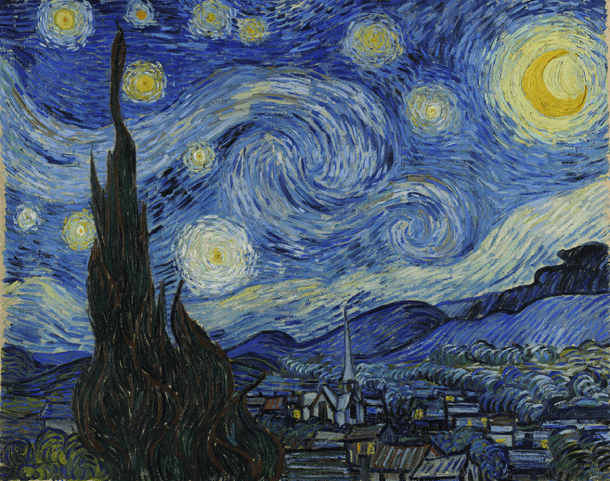
Put it all together and see what they saw, even though what they were painting wasn’t as accurate in a photographic sense, the minuscule details that previously had been a part of the French Academy and every other landscape painter, portrait artist, et cetera, historical painter, that preceded them, the were able to convey something else of themselves.
And so Impressionism hailed the beginning of abstract painting.
And what is abstraction?
Abstraction, the word means to remove, to take something out of. So now what has been started with Impressionism takes us forward into all the various art movements, where there has been a quest for artists to find what is pure and essential to that art form. And we’re using painting as an example, but it’s all art forms. But in paintings, artists were thinking about, well, what do I really need?
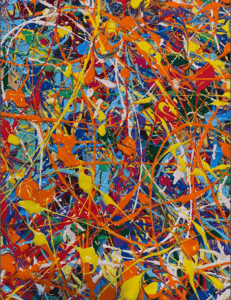 And there were movements that followed and there were movements that basically said, well… all you need to have art, to make a painting, are the plastic elements, paint and canvass.
And there were movements that followed and there were movements that basically said, well… all you need to have art, to make a painting, are the plastic elements, paint and canvass.
You don’t have to have a reference to something in the real world. You just have to have paint and canvas. And of course, at that point, there is still a factor that was necessary to the creation of art. And that was the human being that made it.
And then you go forward a little bit and artists were saying, well Andy Warhol was saying, you don’t even need the artist. He had a little factory of people that made the art and he just signed it.
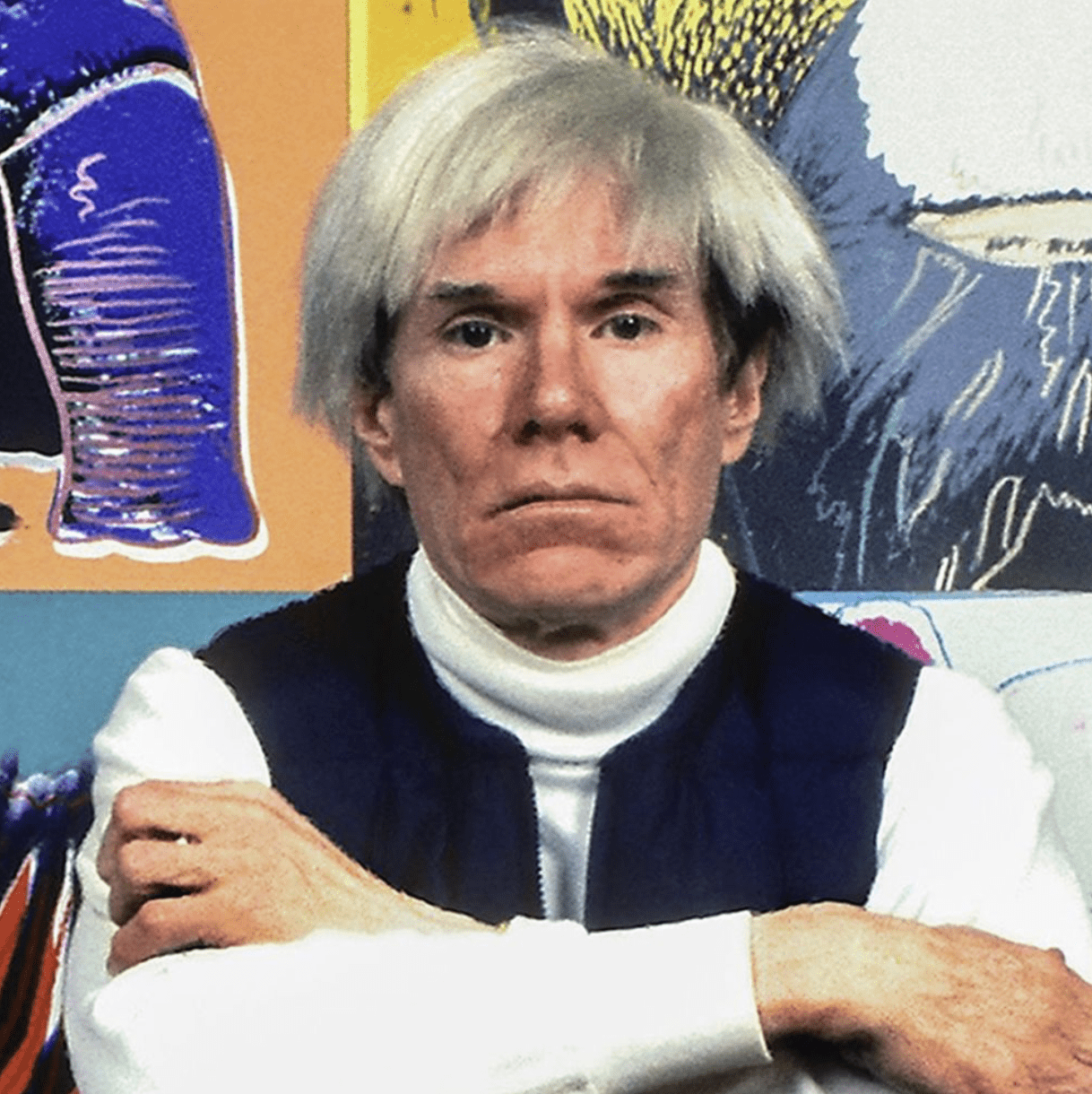
Now, that’s an older concept because there were schools that artists like Caravaggio and other very, very, very famous Renaissance artists and so on used to create paintings. Not all the paintings were done by those Masters or perhaps some of them were just completed by them. But Warhol made it a statement. He basically said, you don’t have to be an artist. You don’t have to have an artist to create art. So, he had his factory make his make art and took the artist out of the picture.
So now you’ve got the plastic elements as are regarded to be critical to the creation of art.
You’ve got the human being, artist as human being or the human being as artists, removed from the picture.
What’s left?
And the answer was concept.
If you have a concept, it can be art.
Now, it’s important to understand that there’s always been a relationship between technology and art. And I can think of two really important examples of how technology is linked to art, and the first has to do with music.
 There was a time when composers could only write bass notes so low because the instruments that they had at the time could only play bass notes down so low. But once larger pipes were created for pipe organs, composers could start to write music with lower and deeper bass notes.
There was a time when composers could only write bass notes so low because the instruments that they had at the time could only play bass notes down so low. But once larger pipes were created for pipe organs, composers could start to write music with lower and deeper bass notes.
And that changed music.
Another example is acrylic paint. Acrylic paint dries very quickly, and it became possible then with acrylic paint to mask off areas. Usually this was done with masking tape then to paint fields of color. And these paintings were referred to as hard edge and as a category they were called color field paintings. It was simply just geometric shapes, usually rectangles and squares, that were just broad fields of color and nothing more.
And that was not possible with oil paint. It was only possible once acrylic paint had been created. And that changed art and it developed a whole new category of painting.
 So to start, you follow the transitions where you remove subject matter, you remove the plastic elements, you remove the artist, the only thing that’s left is concept. And so, from a strictly philosophical point of view, the only element that cannot be taken from art, the only element that cannot be abstracted is concept.
So to start, you follow the transitions where you remove subject matter, you remove the plastic elements, you remove the artist, the only thing that’s left is concept. And so, from a strictly philosophical point of view, the only element that cannot be taken from art, the only element that cannot be abstracted is concept.
Without a concept, you don’t have art.
Now that’s analogous to the film production community because without a story, you don’t have a movie.
You can take everything else out.
You don’t need a director to have a movie.
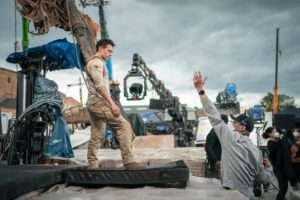 You don’t need a producer. You don’t need a special effects guy or anything else. You can go right on down the line. There have been movies made without directors, without producers. There have been movies made without actors.
You don’t need a producer. You don’t need a special effects guy or anything else. You can go right on down the line. There have been movies made without directors, without producers. There have been movies made without actors.
None of these things are essential to the key, the purest sense of defining a film. What is a movie?
Can it be made without these things? Yes.
What is the one ingredient in a film that you cannot take out of a film because it would cease to be a film?
And that’s story.
So, then you have to look at that and say, well, if story is the only thing that cannot be abstracted, then the only person that’s critical to the creation of a movie is the writer.
And now Sora can be the bridge between the imagination of the writer and the completion of a film without any interpretation, without any conflict, without any battles with egos that are each seeking their own glory, without the financial restraints of a limited budget, of the time restraints, to acquire locations, acquire the actors, get the sets built, buy the wardrobe or rent the props or get the period vehicles or travel to Scotland to film “Rob Roy” or whatever, do a period piece like “Shogun.”
These things all require huge amounts of money and the integration of a team.
But with Sora, the writer not only can make their own film, in its entirety without interference by outside parties, but also, now in a unique position, they have been granted the freedom with Sora to write whatever they want.
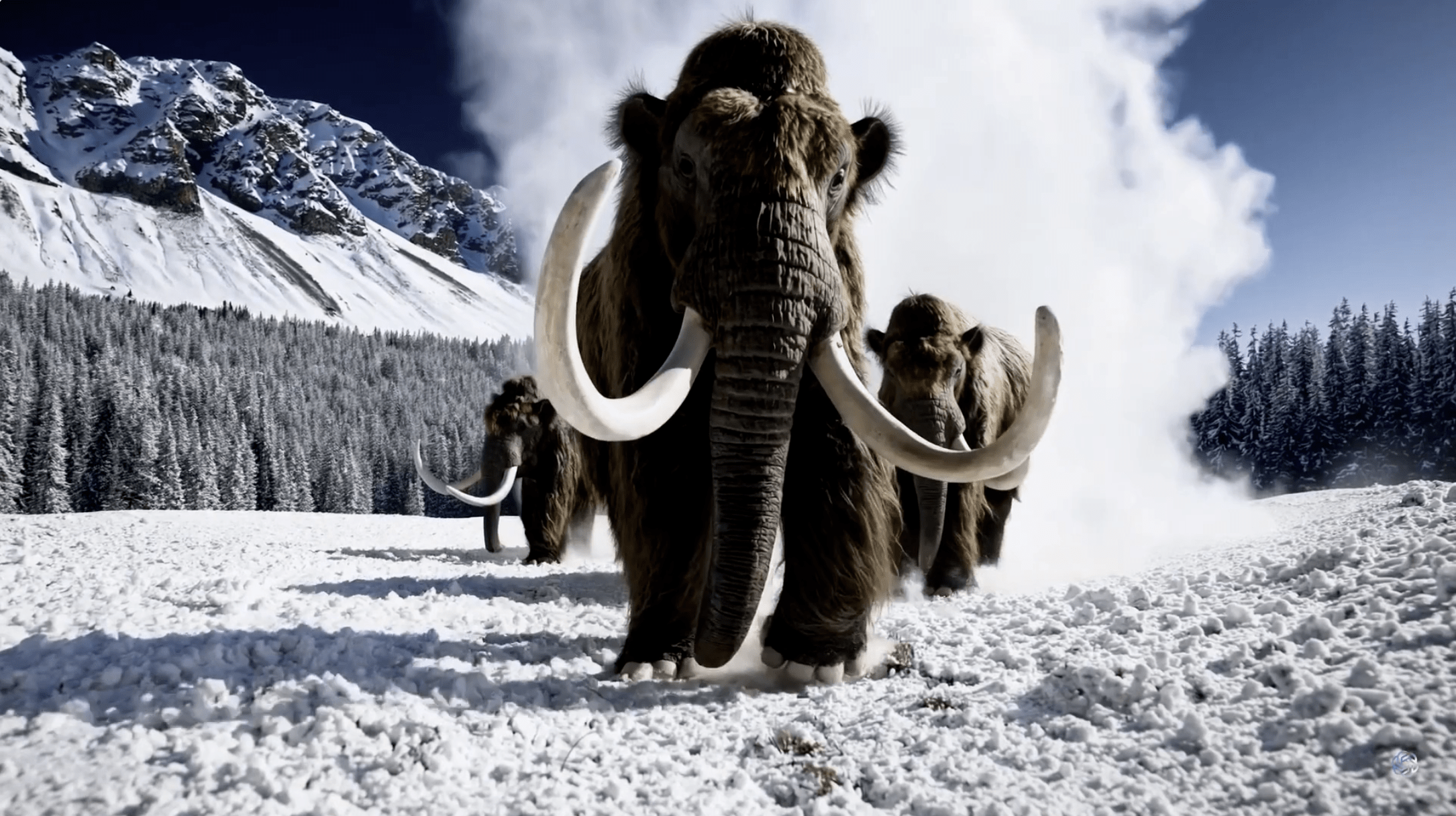
Their imagination is free to wander and write about unknown things, science fiction or dreams and fantasies. Surrealists could go wild with Sora.
But there’s nothing between the writer and the writer’s thought process and ideas and the completion of that, or I should say the realization of that in a finished product that we call a movie or a film.
And so what will eventually happen is a writer can sit down, think of anything they want and write a screenplay and that screenplay then can be put into Sora and Sora will complete it and make their film for them.
Now, that’s a very good thing.
It opens up the possibility for audiences to experience stories that otherwise would never make it to the screen, from writers who otherwise would have to go through many, many gatekeepers and an approval process and a watering down process and a lot of egos to get something made that may or may not sort of reflect the original concept that they wrote about.
Books, as you know, get bought, the rights get bought, movies get made and often the movies are not like the book. People see the movie, they read the book, and they prefer the book.
In some cases, that’s even better.
In some cases, not so much.
The history of movies is littered with stories about relationships between directors and producers and actors and directors and so on that had conflict. And I’m not saying that that conflict is in and of itself a bad thing because with conflict comes growth. And I’m not saying that all writers’ ideas are perfect.
There’s a place for socialization and there’s a place for interaction and there’s a place for collaboration. All of that can still exist even with Sora because it can all happen before anything is input into Sora. 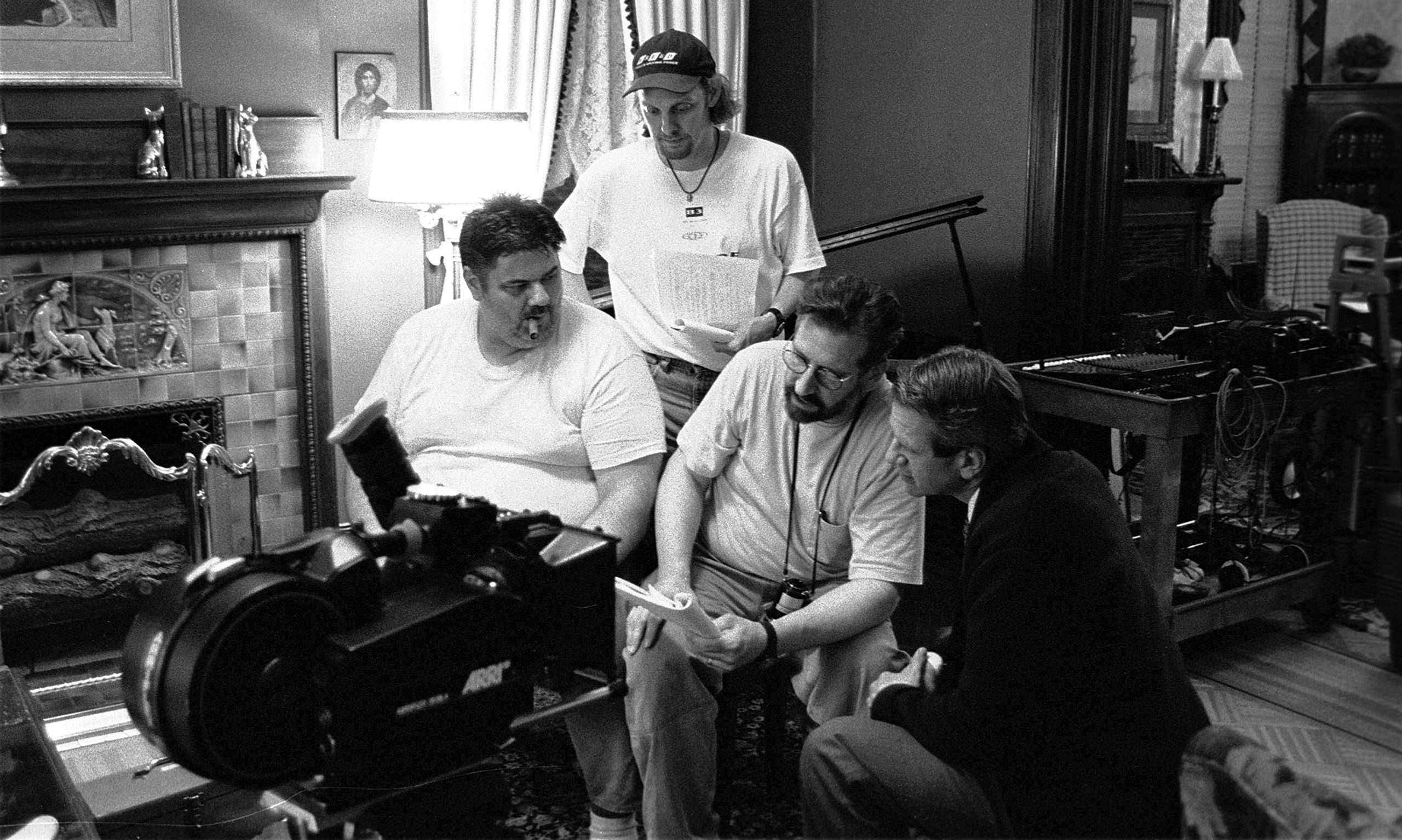
So there can be a team, but in the end, it’s the writer who makes the movie and that’s the promise of Sora.
Steven: It’s obvious to me that the “winners” of this new game are gonna be the people who know how to write. And I don’t mean that anyone is a writer because anyone can learn how to type, but that doesn’t make a story.
Michael: That’s correct. We all have pencils that doesn’t make us writers.
Doesn’t make us artists either. Yeah, there will be good and there will be bad and the good will rise and the bad will sink, you know? But there will be opportunity for everyone and the good writers, the ones that have learned their craft will be the ones that are making the great movies of the future. So my advice to anyone that wants to be a filmmaker is don’t study filmmaking, don’t study how to be a director, don’t study acting, study writing. Get a degree in English, read books, read everything you can get your hands on, read history, look at art, indoctrinate yourself culturally.
Get as many experiences as you possibly can because all those experiences are gonna be part of your writing in the future.
It’s important that you study human nature, but it’s also even more important that you become proficient in the practice of the English language as it’s applied to writing. So go to college, get a writing degree. You can go to a graduate school and get a master’s degree, but throughout that entire process, read, read, read. I mean, you should be familiar with Shakespeare. You should be familiar with all of the classics, all of the great writers, all of the great philosophers.
This is your treasure trove. This is your reserve.
This is where you will go when you wanna write a story because it will be instinctual.
It’s like anything, it’s like a muscle, it’s muscle memory. The more you practice it, the better you get at it. And at a certain point, the writing just flows because you have these great reserves of skill and experience that you’ve gained by studying and by practicing.
And that’s what’s gonna make a filmmaker, not somebody who knows how to set an F stop on a camera or how to shoot HD, or what the difference is between an MOV and an MPEG.
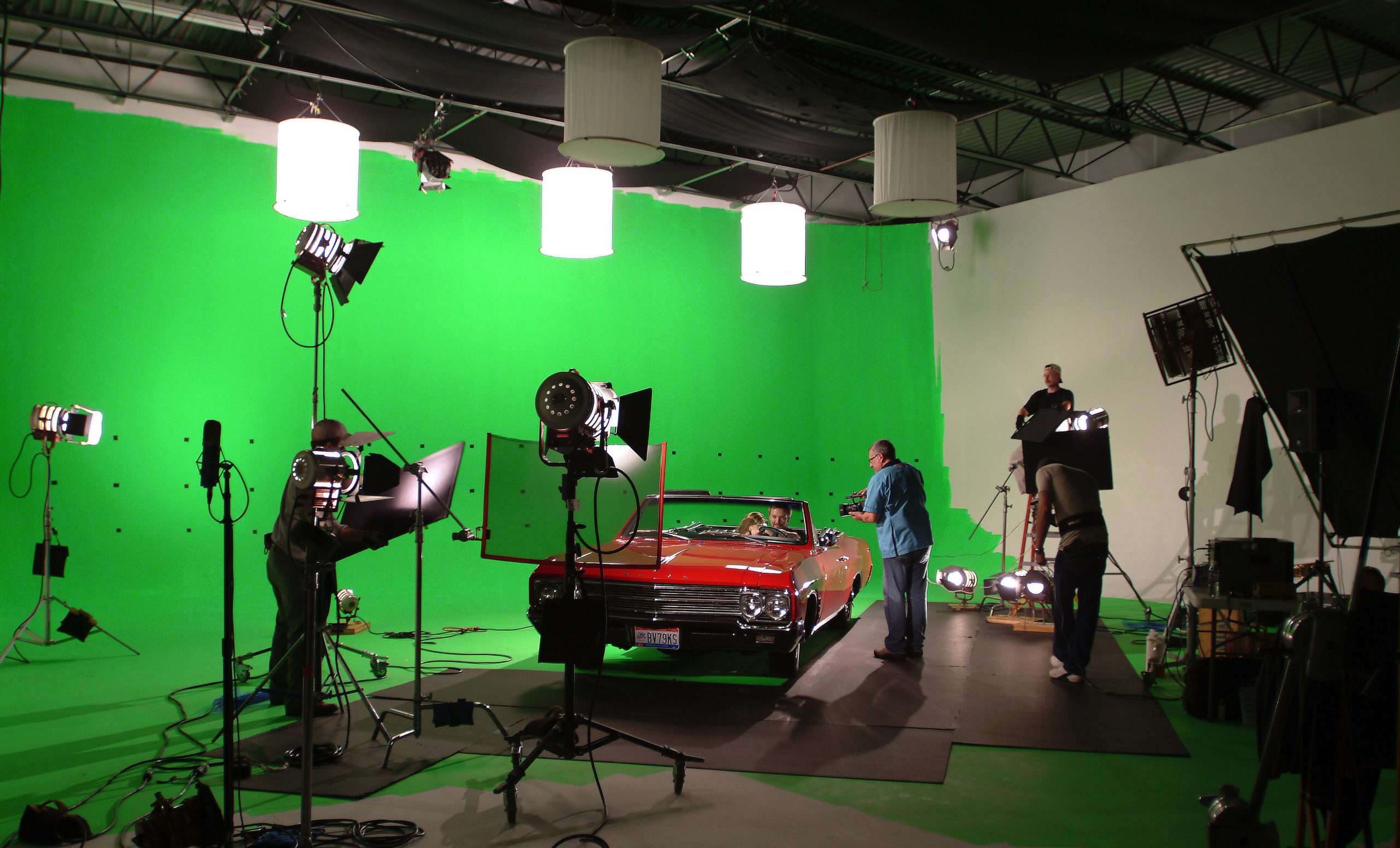
None of that matters.
You don’t need to know Final Cut or Premiere or DaVinci Resolve to make a movie. You don’t have to have a sound man. You don’t have to have a team of players. I made a movie and I had, at any given time… I probably had 50 people on the set between the actors, the extras, the caterers, the craft service people, the wardrobe people, the location people, the crew, myself, my producer, et cetera.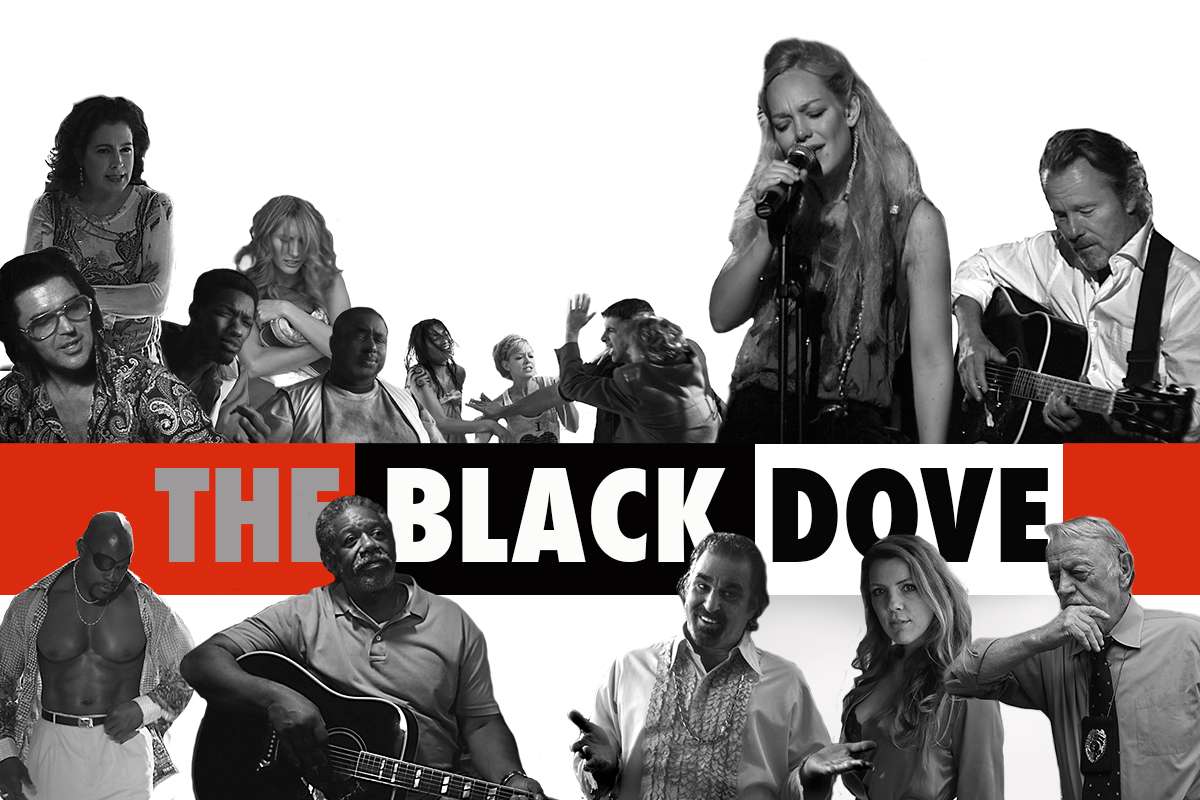
And we would pick up and we would move from location to location. And we would have to plan the events of our shoot very carefully, work around rain, work around day and night problems, work around overtime, work around the limitations that SAG imposes on the use of their actors, work around the financial limitations of our budget, the amount of money that we raise and make compromises all along the way. Compromise, compromise, compromise, compromise, compromise, compromise all along the way. I had a mutinous crew at times. They didn’t understand. They didn’t care about the film. They were there to get a daily paycheck and that was it. They are craftspeople. They’re not artists.
And yet so much of the quality of my film rested in their hands and I had to be the taskmaster. I had to hold their feet to the fire and make it happen in spite of them. I had to enforce my will and my vision on people that didn’t understand it and did not wanna cooperate and wanted to have it easier on themselves because we were gonna hit overtime and they wanted to go home.
That’s the nature of filmmaking as it exists today.
That’s all gonna go away. Gonna go the way of the shit shovelers.
Steven: Are they in the studios in quiet panic mode?
Michael: Well, I don’t think they are because they’re gonna be able to make movies this way too. The people that are in quiet panic mode are all the individuals that worked on movies because they’re not gonna be needed anymore. The studio can just get a writer, pay the writer, and take advantage of Sora just like anybody else. But also, they can buy the movie from the writer and distribute it, or they can just get their own writers, pay them a salary, make more movies than before, movies and then after, pick the ones that they wanna put into distribution. Whatever that form of distribution will be, most likely streaming, but think about this… Currently, as it exists right now, let’s suppose a studio ha 100 scripts and they say, “Okay, but these are the top 10 and of these top 10, this year we’re gonna make these four.” What about those other six that never got made or the others that will never be seen?
With Sora, they can make them all.
With the proper resources in computers, rendering farms, whatever it’s gonna take and believe me, that technology will advance, it’s possible. They can make all 100 movies and then they can sit back and watch them and they can say, “Oh, these are the ones we’re gonna take to market and these, yeah, they’re not such good ideas, but you know what? We can stream those on these other alternate channels.” It’s kind of like having an A team and a B team.
You’ve got your farm teams and then you’ve got your major league teams and pretty soon the studios are gonna start classifying the creations they make with Sora as A movies, B movies, and C movies and they’ll make C movies like the Roger Corman style movies and the horror movies and all of those kinds of films that are not art forms but are just entertainment in its lowest form.
They might shudder at the thought of that today. That’s not where the money is for them. But like a Procter and Gamble that owns many different types of detergent all on the shelf in the store… Tide competing with Era, competing with Gain, et cetera, et cetera, et cetera, all P&G brands.
Just like that, the movie studios can be making B and C movies like a Roger Corman film or a cheap horror film, things that aren’t necessarily going to be moneymakers now but in the proper context as items on the shelf can be moneymakers that add to their total bottom line.
So, it’s a boon for studios. And actors too, who have established their worth to put butts in seats. Tom Cruise, for example will never have to worry because like all actors, he owns the copyright to his face. Understanding that is key, because Tom can write more Mission Impossible movies starring himself, (his AI likeness) and if the studio distributes it, he will get not only the proceeds from licensing the film, but also the SAG residuals, just like before.
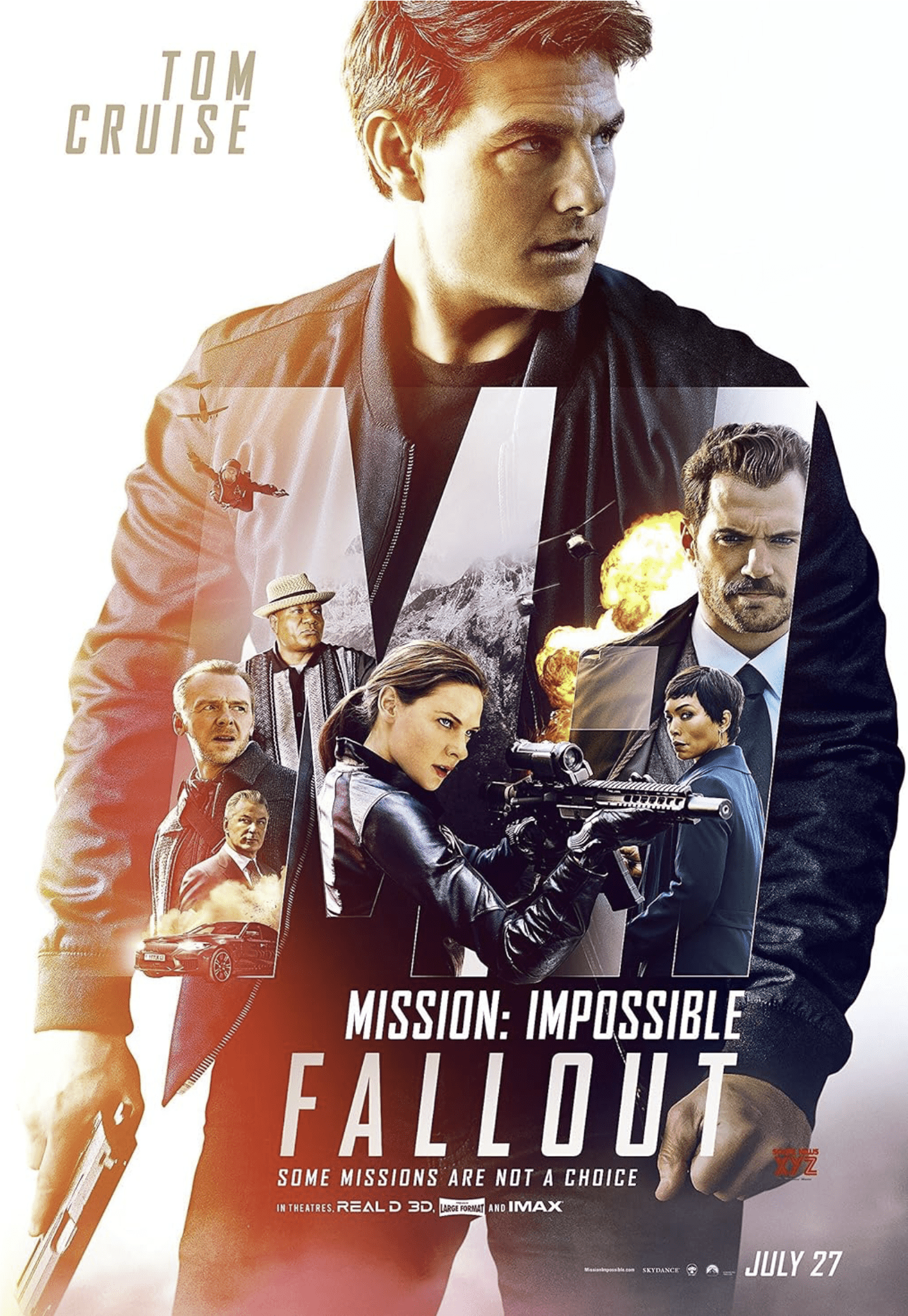 So, like I said, “… the only people who stand to lose are the shit-shovelers and the whip-snappers.”
So, like I said, “… the only people who stand to lose are the shit-shovelers and the whip-snappers.”

on a cobblestone street are a pile of horse feces
There will be a transition period, and just like the move to clean energy, they will have to transition to work that they can apply their craft to. It may not be filmmaking.
Steven: This is an incredible time to be creative.
Michael: It is.
Steven: To simplify this entire conversation in one or a few sentences, what would you say that gives advice and hope to the future generation of filmmakers, storytellers, and artists?
Michael: Well, if what you desire is to be a filmmaker, as I said previously in this conversation, you need to be a writer. You need to learn to write. And if you will apply your labors to endeavor to become a writer, then as they say, the world is your oyster. You can get made whatever you can think of, whatever you can in your mind visualize, whatever you want to explore, just for the sheer pleasure of seeing where it goes. You can go on your own journey without the idea of a destination and find the destination quite unexpectedly, and you can make a creation of something lasting of that journey, and share it with the world.
Steven: It was a day like any other day but this day was different.
Michael: Exactly! Thank you.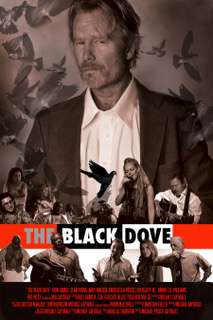
Activism
Mother Nature Cambodia activists sentenced to prison for peaceful protest
(STOCKHOLM) – Right Livelihood strongly condemns today’s arrest and sentencing of ten Mother Nature Cambodia activists, who  were given prison terms ranging from six to eight years on charges of plotting and insulting the king.
were given prison terms ranging from six to eight years on charges of plotting and insulting the king.
The Cambodian government cracked down on the activists from Mother Nature Cambodia, a 2023 Right Livelihood Laureate movement, merely because they carried out peaceful protests to protect Cambodia’s environment.
Right Livelihood calls for the immediate release of the arrested activists and urges the Cambodian authorities to respect and uphold human rights and environmental justice.
We are deeply concerned about the violent manner in which today’s arrests were carried out, particularly the force used against four activists outside the Phnom Penh court.
We are also alarmed by the current lack of information regarding the whereabouts of five of the activists, whose location remains unknown.
This situation highlights the urgent need for greater protection of environmental activists and their right to peaceful protest. We stand in solidarity with all individuals working towards a just and sustainable future for Cambodia.
About Right Livelihood
For over 40 years, Right Livelihood has honored and supported courageous people solving global problems. Housed under the umbrella of a foundation, Right Livelihood is a courage-powered community for social change committed to peace, justice and sustainability for all.
Each year, Right Livelihood highlights change-makers through an Award. To date, 194 Laureates from 76 countries have received the distinction. By recognizing the actions of brave visionaries and building impactful connections around the world, Right Livelihood boosts urgent and long-term social change.
The Award was founded in 1980 following the Nobel Foundation’s rejection of a proposal to create two new prizes to honour individuals committed to advancing social justice and environmental causes, especially highlighting change-makers from the Global South.
Today, the work of Right Livelihood goes beyond presenting the Award: the Foundation provides Laureates with life-long support. Right Livelihood is a megaphone and a shield: raising their profile, providing protection when their lives and liberty are in danger, and educating people on their innovative solutions.
Right Livelihood is headquartered in Stockholm, with an office in Geneva. The Foundation has Consultative Status with the UN.
Activism
Dismantling Systemic Racism

Systemic Racism: Structure, Effects and Dismantling
Discover the origins, components and results of Institutionalized Racism
By Dale B. Taylor, Ph.D.
INTRODUCTION
 While growing up in Topeka, Kansas during the time that Brown et al. were mounting a lawsuit against the Board of Education, my family members and I were subjected to constant and relentless acts of racism, both overt and covert, designed to make our lives less productive and less successful than our white neighbors, classmates and coworkers. These acts usually did not consist of name calling, violence, threats of violence or charges of criminality. Those types of individual racist behavior were rarely seen by me personally and when they did occur, I was able to resist the kind of response that would create a lasting record of undesirable or inappropriate behavior on my part which later would have been used to prevent me from reaching bigger more important goals in life.
While growing up in Topeka, Kansas during the time that Brown et al. were mounting a lawsuit against the Board of Education, my family members and I were subjected to constant and relentless acts of racism, both overt and covert, designed to make our lives less productive and less successful than our white neighbors, classmates and coworkers. These acts usually did not consist of name calling, violence, threats of violence or charges of criminality. Those types of individual racist behavior were rarely seen by me personally and when they did occur, I was able to resist the kind of response that would create a lasting record of undesirable or inappropriate behavior on my part which later would have been used to prevent me from reaching bigger more important goals in life.
The continuous racist acts that could not be ignored and for which there was no immediate or direct response were those that were written into laws and official policies and were therefore regularly practiced as accepted procedure throughout all of the city’s daily discourse. To fully understand how these racially biased systems work to generate disparities that result in disadvantaged outcomes for citizens of color, it is necessary to first define the terminology used to refer to racist behavior as well as the structures and regularly practiced procedures that generate racially disparate outcomes. Scientific evidence indicates that in addition to conscious, deliberate cognitive processes, humans also engage in “implicit” or unconscious, effortless, automatic, evaluative processes in which they respond based on images stored in their memory [Dovidio JF, Gaertner SL. Aversive Racism. In: Zanna M, editor. Advances in Experimental Social Psychology. Vol. 36. San Diego, CA: Academic Press; 2004. pp. 1–51]. These memory stores are implanted from very early in life through perceptions of language used by family and through the images and labels assigned to certain groups by educators and by the media [See https://www.linkedin.com/pulse/lethal-effects-media-racial-bias-dale-taylor/].
Racist behavior resulting from “intrinsic” or “implicit” bias consists of individual acts of prejudice that may or may not include violence against a person of a different skin color, ethnic heritage or religious group. However, this type of behavior is not the subject of this paper. To illustrate, in March of 2023, Oklahoma’s McCurtain County Sheriff Kevin Clardy was recorded talking to City Commissioner Mark Jennings about killing reporters and hanging black people. While this racially biased exchange revealed intense feelings of internalized racism harbored by these public officials, it was not itself “systemic.”
Systemic Racism
Racism is not a personal choice, it is by design. Systemic racism, also referred to by terms such as “institutional racism,” “systemic bias” or “structural racism,” consists of laws, written and unwritten rules, operational procedures, policies, practices, traditions and structural deficits in opportunity that are purposely designed to result in inequitable treatment leading to negative outcomes for a specific group of people, such as native, Hispanic or black Americans. For example, when the Topeka Board of Education established a rule prohibiting African-American children from attending the same elementary schools or using the same textbooks as white children, they also spent school board funds to establish four schools exclusively for black children and to bus me out of my all black neighborhood up eleventh street right past all-white Lowman Hill Elementary School to a different all-black neighborhood where Buchanan Elementary School was located. We later would learn that segregated schools had very different levels of funding for staff and upkeep, different student-teacher ratios, different facilities such as no library, assembly hall, cafeteria or gymnasium at Buchanan, and different textbooks often with two versions of the same title published under the same Library of Congress number. Similar practices were occurring in other parts of the city in order to purposely provide a lower quality education to children of color. There was no recourse for any of our parents who might have preferred for us to attend our nearest neighborhood school. It was their reaction to this oppressive system of discrimination that prompted a group of parents to seek the services of NAACP attorney Thurgood Marshall to pursue the Brown vs. Board of Education lawsuit that was appealed all the way to the U.S. Supreme Court where it resulted in the unanimous 1954 school desegregation decision.
A much more current example of systemic racism occurred in 2024 when the Wisconsin Governor stated that a group of legislators are refusing to release funding for public schools that include DEI or Diversity-Equity-Inclusion programming. This is a perfect example of “systemic racism” perpetuated by lawmakers who use their positions to keep people of color from succeeding in gaining the education that could help overcome the structured poverty and deprivation that leads to devastating racial disparities. They know that Wisconsin consistently ranks as the #1 Worst State for Black Americans because the intentionally segregated housing patterns that most black students come from have relegated them to substandard poorly funded prep schools due to purposely lowered appraised property valuations that are used as the basis for school funding in neighborhoods where a child’s address determines which school they attend. Lawmakers then strive to prevent all forms of help such as may be provided by DEI programs at secondary or collegiate levels that could help overcome the resulting gaps in student preparation. These same legislators also know that surveillance policing with stop-&-frisk tactics in those areas (as opposed to on-call policing) has tagged large numbers of potential college students with life-changing misdemeanor or criminal charges, unaffordable fines and fees, prison time or arrest records which—regardless of proven innocence or dropped charges—further limits college eligibility, job qualifications and housing prospects among this population. Even one misdemeanor charge often prevents housing eligibility, vehicle ownership, educational opportunity and most employment.
Legislators especially strive to prevent financial assistance to those students of color who do qualify for college because they know that college funding via household wealth in segregated areas is severely limited since home equity loans, which are often used to pay for college, are not available to families who live in rented homes, publicly funded housing, homes with low property valuations, people already paying high monthly mortgage installments, families with under-educated heads of household, families supported by any form of public assistance, homes with low or no accrued equity, or to any loan applicant with an arrest record or who is denied at the banker’s own discretion. The resulting poverty results in homelessness and food insecurity, and generates dependence on numerous other sparsely rationed resources such as poorly funded infrastructure, absent or poorly maintained recreational facilities, distant emergency services, sparse public transportation, few job opportunities, no artistic outlets, too few voting sites, poor quality nutrition, nonexistent or discriminatory financial services and difficult health care access with biased health care providers. This systematic oppressive deprivation is normalized in the public eye via media conditioning that implants racial bias through use of demonized descriptors and criminalized images designed to negatively stereotype citizens of color living in segregated areas. At the same time, they ignore stories about positive accomplishments by black and brown people. To illustrate, the Baltimore Sun published a 2022 apology to its Black constituents stating in part that:
“The Baltimore Sun promoted policies that oppressed Black Marylanders; we are working to make amends. The Baltimore Sun frequently employed prejudice as a tool of the times. It fed the fear and anxiety of white readers with stereotypes and caricatures that reinforced their erroneous beliefs about Black Americans. And this newspaper reinforced policies and practices that treated African Americans as lesser than their white counterparts — restricting their prospects, silencing their voices, ignoring their stories and erasing their humanity. The Sun sharpened, preserved and furthered the structural racism that still subjugates Black Marylanders in our communities today.”
The Sun also admitted to “editorials seeking to disenfranchise Black voters, failure to hire any African American journalists, identification of Black people by race in articles, reliance for too long on the word of law enforcement over that of Black residents, an absence of stories about issues relevant and important to non-white communities, and a failure to feature Black residents in stories of achievement and inspiration rather than crime and poverty.”
Although most systemic racism is based on statutory or other written rules, it is not uncommon for some of its components to allow discretionary applications, such as when a law is written to appear as though it applies to everyone but the clear intent is to only enforce it when the accused person is black. A prominent example was exposed in 2021 when Governor Ralph Northam of Virginia delivered a public apology to the African-American community after the death penalty was repealed in that state. According to Northam’s office, there were 45 executions for rape in Virginia during the 44 years from 1908 to 1951 and ALL of those killed were black. He granted posthumous pardons for a group of seven black men between the ages of 18 and 23 who were executed in 1951 for allegedly raping a white woman in Martinsville, VA. Some of them could not read the confessions they signed and none had an attorney present during questioning. In his statement, Northam said “The Commonwealth of Virginia played an irrefutable role in the political, economic, and social disenfranchisement of Black Americans, and helped shape, actively enforce, and uphold the racially discriminatory Jim Crow laws which were formed to further systematically oppress Black Americans and maintain the status quo.” The pardon also said that race “played an undeniable role during the identification, investigation, conviction, and the sentencing.” Recognizing the racial disparity, the U.S. Supreme Court ruled in 1977 that the death penalty was cruel and unusual punishment for rape. These examples describe “systemic” racism because the legal system was used as an unassailable tool of oppression requiring U.S. Supreme Court action to dismantle.
The foundation of systemic racism, however, cannot be understood only through studying written laws or exposing biased enforcement of statutes. Systemic racism has numerous components each of which is interdependent with the others. Throughout this paper, we will examine the system as a whole while describing its four major components—housing, education, policing, health care—as we seek to determine what effects each component has on the creation and sustaining of systems that perpetuate racial disparities. This level of discernment is necessary in order to begin to determine effective mechanisms for dismantling this country’s pervasive system of racial oppression. “Racial and ethnic inequalities loom large in American society,” according to the Urban Institute, a Washington, D.C. think tank founded by Lyndon B. Johnson in 1968. “People of color face structural barriers when it comes to securing quality housing, health care, employment, and education. Racial disparities also permeate the criminal justice system.” Systemic racism can be dismantled only when each of us understands the scaffolding holding it in place.
1: Residential Segregation: The Cornerstone of Systemic Racism
The physical separation of black Americans from white residents and their confinement within the boundaries of segregated living spaces is the essential Foundational Component of Systemic Racism. All other aspects are results of this housing separation, they exist to sustain residential limitations, or they depend on residential restrictions in order to be effective in causing disadvantages for people of color. By limiting areas in which blacks can live, power brokers can use political, financial, judicial and regulatory systems to control people’s behavior, personal freedom, opportunity, living conditions and the presence or absence of resources—both good and bad—that are present in those neighborhoods.
In large U.S. cities, resources that are controlled in racially segregated residential areas include food which is controlled by manipulating prices, quality and grocery license availability in ways that have unique effects on those living in geographically isolated black housing areas. Prices and access to essential services such as water, natural gas and electricity also are managed from outside of these areas. Job opportunities often become scarce when a neighborhood becomes primarily black occupied and overcrowded. The resulting income deprivation then causes some to resort to prostitution or other illegal means to survive financially. Their plight facilitates the influx of unsavory and dangerous commodities being funneled in from outside such as illegal drugs, alcohol, guns and pornography, none of which are originally manufactured within the area by its black residents. Government authorities then respond by replacing ‘on-call’ policing with ever-present ‘surveillance’ policing using stop-and-frisk tactics which leads to more arrests, convictions, mass incarcerations and executions.
Public funding becomes minimal or frequently denied for segregated area infrastructure such as street repair, street construction, street lighting, public transportation and schools. Access to or denial of emergency services, health care and recreational facilities in a segregated area also are controlled by outsiders through manipulation of licenses, zoning, building permits and other regulatory instruments. Residents of these areas still are subjected to increased taxation, constant police surveillance, decreased voting access and increased susceptibility to “eminent domain” or “urban renewal” property seizures for highways, airports, military installations and shopping malls. Housing segregation, therefore, makes it possible for these and other intentional barriers to be used to make life difficult for black and any other specified isolated population group. This is why Residential Segregation must be understood as the most basic and important of all oppressive systems to be addressed and discontinued before lasting change can be achieved. Its effects are far-reaching and cannot be overcome by hard work, political participation, education or any other independent effort put forth by area residents. As this paper will demonstrate, Open Housing is the only effective sustainable remedy.
HOUSING DISCRIMINATION
The availability of housing is the first question to be addressed when an individual or family seeks to reside in a certain region or city. However, those in power who may want to deny freedom and opportunity for people of color (POC) know that there are many factors which can be used to limit their ability to occupy a specific house in a desired neighborhood regardless of whether the potential occupant has the money, the income or the appropriate credit history. They also know that home ownership is the most necessary factor for a family to build household and generational wealth in the U.S. economy. This paper will reveal some of the most important devices used to prevent a black citizen from obtaining a home in a desirable neighborhood and forcing that family to reside in substandard housing in a segregated area with little to no chance of ever using that home as a basis for building wealth.
Because segregated housing is essential for Systemic Racism to exist without apartheid laws, there are numerous financial, regulatory and discretionary mechanisms used to prevent black residents from buying, selling, renting, building, occupying or accruing equity in a house outside of a designated geographical area. This paper will illuminate many of the time-tested tactics systematically utilized through a partnership between government, real estate and banking sectors designed to restrict urban land use to either black or white residents with preferred areas reserved for whites.
REDLINING: Its Origin, Structure & Remedies
 Housing discrimination has been a major obstacle faced by African-Americans since emancipation. Racially separated housing became official government policy with implementation of the system known as “redlining.” The U.S. Department of Justice defines “Redlining” as an illegal practice in which lenders avoid providing services to individuals living in communities of color because of the race or national origin of the people who live in those communities. It first became official policy in 1933 when the federal government sought to establish an economic foundation for racial discrimination. In that year, a federal agency called the Home Owners Loan Corporation (HOLC) was founded under newly elected President Franklin Delano Roosevelt’s “New Deal.” The Federal Housing Administration (FHA) was then established by the National Housing Act of 1934 to regulate interest rates and mortgage terms after the banking crisis of the late 1920s and early 1930s. Through the newly created FHA, the federal government began to insure mortgages issued by qualified lenders, thereby providing mortgage lenders protection from default. If a borrower failed to make their payments, the FHA was required to cover the unpaid balance. It implemented segregated housing policies by using color coded maps developed by the HOLC and referred to as “residential security maps” to tell banks which loans would be insured by the federal government. Loan insurability was not based on the quality of the housing or the ability of borrowers to repay. It was exclusively based on the share of Black people in the neighborhood: Green – most desirable; Blue – still desirable; Yellow – declining; Red – any area Black Americans lived in or even lived nearby meant “too hazardous to lend to.” This practice called “Redlining” was created by the federal government, administered by the HOLC, and adopted by lenders in 239 U.S. cities that were mapped in the four colors. In the Underwriting Handbook used by the FHA, African-American neighborhoods were marked as ‘ineligible’ for FHA loans. Resident “Negroes” in any area were referred to in government documents as “subversive elements.” The stated purpose of the HOLC loan program was to help veterans but not all veterans could benefit. Between 1933 and 1952, 98% of the home loans went to white Americans, thus excluding nearly all black Americans from this federal program.
Housing discrimination has been a major obstacle faced by African-Americans since emancipation. Racially separated housing became official government policy with implementation of the system known as “redlining.” The U.S. Department of Justice defines “Redlining” as an illegal practice in which lenders avoid providing services to individuals living in communities of color because of the race or national origin of the people who live in those communities. It first became official policy in 1933 when the federal government sought to establish an economic foundation for racial discrimination. In that year, a federal agency called the Home Owners Loan Corporation (HOLC) was founded under newly elected President Franklin Delano Roosevelt’s “New Deal.” The Federal Housing Administration (FHA) was then established by the National Housing Act of 1934 to regulate interest rates and mortgage terms after the banking crisis of the late 1920s and early 1930s. Through the newly created FHA, the federal government began to insure mortgages issued by qualified lenders, thereby providing mortgage lenders protection from default. If a borrower failed to make their payments, the FHA was required to cover the unpaid balance. It implemented segregated housing policies by using color coded maps developed by the HOLC and referred to as “residential security maps” to tell banks which loans would be insured by the federal government. Loan insurability was not based on the quality of the housing or the ability of borrowers to repay. It was exclusively based on the share of Black people in the neighborhood: Green – most desirable; Blue – still desirable; Yellow – declining; Red – any area Black Americans lived in or even lived nearby meant “too hazardous to lend to.” This practice called “Redlining” was created by the federal government, administered by the HOLC, and adopted by lenders in 239 U.S. cities that were mapped in the four colors. In the Underwriting Handbook used by the FHA, African-American neighborhoods were marked as ‘ineligible’ for FHA loans. Resident “Negroes” in any area were referred to in government documents as “subversive elements.” The stated purpose of the HOLC loan program was to help veterans but not all veterans could benefit. Between 1933 and 1952, 98% of the home loans went to white Americans, thus excluding nearly all black Americans from this federal program.
Real Estate and Lender Complicity
Once geographical limitations were designated by the government identifying where African-Americans lived, the homes in that area became the only ones shown to black home seekers by real estate agents. These areas were identified to banks and real estate brokers as “high risk” areas characterized by housing and lending discrimination that prevented homeowners from obtaining insured mortgages to purchase, replace or improve existing homes. In most cities, these areas contained substandard housing, multiunit rentals owned by absentee landlords, or were near factories or railroads that produced air, water and noise pollution. Residents were the first to be uprooted when such areas were subjected to “urban renewal” under which all land ownership reverted to the government so that a large scale project such as a freeway could be built right through the heart of the neighborhood. Having been created by the government and implemented then and now by private lenders, today’s DOJ acknowledges that the system has had a lasting negative effect.
Redlining was outlawed by the by the Fair Housing Act of 1968 and further prohibited by the 1974 Equal Credit Opportunity Act, but the damage had been done and the practice has continued especially in major U.S. cities. The reason is that although official federal policy changed in 1968, those changes included no remedies for past injustices or any penalties for continuing to propagate financial policies practiced throughout decades of past redlining discrimination in housing patterns. Consequently, the courts continued to uphold residential separation in cases that challenged the status quo since there was no legal mandate to change what had already been established. Also, there was no campaign to re-educate bank lenders regarding the revised FHA mortgage insurance requirements that now permitted insuring home loans in areas where blacks reside. Consequently, the white public continues to believe erroneously that if black residents move into their neighborhood, their own property will be devalued and their ability to secure federally insured loans will be diminished. These beliefs are further reinforced by home appraisers who place below-market values on homes owned by or located near black residents and by realtors who steer black home buyers away from white occupied neighborhoods by only showing them homes in areas where black residents already comprise the majority.
Another post-1968 result of court decisions upholding practices and conditions resulting from redlining was that local and especially private regulations that discriminated against black home buyers were allowed to continue and even to expand. In recent years, however, the FHA and its affiliates have begun an active program of enforcement that has resulted in numerous very costly fines being paid as part of settlements of cases brought by federal regulatory agencies against major banks in numerous states. In a 2021 case, the Justice Department, the U.S. Attorney’s Office for the Western District of Tennessee, the Consumer Financial Protection Bureau (CFPB) and the Office of the Comptroller of the Currency (OCC) announced an agreement to resolve allegations that Trustmark National Bank engaged in lending discrimination by redlining predominantly Black and Hispanic neighborhoods in Memphis, Tennessee. The parties’ proposed consent order was filed in conjunction with a complaint in the U.S. District Court for the Western District of Tennessee. The complaint alleges that Trustmark National Bank violated the Fair Housing Act and the Equal Credit Opportunity Act, which prohibit financial institutions from discriminating on the basis of race, color or national origin in their mortgage lending services.
The complaint also alleges that Trustmark National Bank violated the Consumer Financial Protection Act, which prohibits offering or providing to a consumer any financial product or service not in conformity with federal consumer financial law. Specifically, the complaint alleges that, from 2014 to 2018, Trustmark engaged in unlawful redlining in Memphis by avoiding predominantly Black and Hispanic neighborhoods because of the race, color, and national origin of the people living in, or seeking credit for properties in, those neighborhoods. The complaint further alleges that Trustmark’s branches were concentrated in majority white neighborhoods, that the bank’s loan officers did not serve the credit needs of majority Black and Hispanic neighborhoods, that Trustmark’s outreach and marketing avoided those neighborhoods, and that Trustmark’s internal fair-lending policies and procedures were inadequate to ensure that the bank provided equal access to credit to communities of color. The justice department had opened its investigation after one of Trustmark’s regulators, the OCC, referred the matter. “Trustmark purposely excluded and discriminated against Black and Hispanic communities,” said Director Rohit Chopra of the Consumer Financial Protection Bureau (CFPB). “The federal government will be working to rid the market of racist business practices, including those caused by discriminatory algorithms.”
Under the 2021 agreement, Trustmark will invest $3.85 million in a loan subsidy fund to increase credit opportunities for current and future residents of predominantly Black and Hispanic areas in Memphis; dedicate at least four mortgage loan officers or community lending specialists to these neighborhoods; and open a loan production office in a majority Black and Hispanic neighborhood in Memphis. Trustmark will devote $400,000 to developing community partnerships to provide services to residents of majority Black and Hispanic neighborhoods in Memphis so as to increase access to residential mortgage credit. Trustmark will devote at least $200,000 per year to advertising, outreach, consumer financial education and credit repair initiatives in and around Memphis. Trustmark also will have to pay a total civil money penalty of $5 million to the OCC and CFPB. Trustmark already has established a Fair Lending Oversight Committee and designated a Community Lending Manager who will oversee these efforts and work in close consultation with the bank’s leadership. “Home ownership is the foundation of economic success for most American families,” said Acting U.S. Attorney Joseph C. Murphy Jr. for the Western District of Tennessee. “Fair lending practices required by federal law — and the enforcement of those laws — ensure a better future for all Americans. Our office believes that enforcement actions of this type are essential to a fair lending system that benefits everyone, and we will continue to prioritize these cases.”
In August 2021, the Justice Department and the OCC announced a similar redlining settlement with Cadence Bank, headquartered in Atlanta with offices in Houston. Under the settlement, Cadence will invest over $5.5 million to increase credit opportunities for residents of majority Black and Hispanic neighborhoods in Houston. The DOJ alleged that Cadence Bank violated the Fair Housing Act and the Equal Credit Opportunity Act, which prohibit financial institutions from discriminating on the basis of race, color or national origin in their mortgage lending services. Specifically, the complaint alleged that, from 2013 to 2017, Cadence engaged in unlawful redlining in the Houston area by avoiding predominantly Black and Hispanic neighborhoods. The department also alleged that Cadence’s branches were concentrated in majority white neighborhoods, that the bank’s loan officers did not serve the credit needs of majority Black and Hispanic neighborhoods and that the bank’s outreach and marketing avoided those neighborhoods.
Under the department’s settlement, which was approved by the District Court on August 31, 2021, Cadence will invest $4.17 million in a loan subsidy fund for residents of predominantly Black and Hispanic neighborhoods in the Houston area, $750,000 for development of community partnerships to provide services that increase access to residential mortgage credit in those neighborhoods, and at least $625,000 for advertising, outreach, consumer financial education, and credit repair initiatives. The bank will dedicate at least four mortgage loan officers to majority Black and Hispanic neighborhoods in Houston and open a new branch in one of those neighborhoods. Cadence will employ a director of community lending and development who will oversee these efforts and work in close consultation with the bank’s leadership. The bank will take these steps in addition to other fair lending measures it has already put in place.
“When banks fail to provide equal access to credit in communities of color, they violate our civil rights laws and they deprive people in those communities of the opportunity to build wealth,” said Assistant Attorney General Kristen Clarke of the Justice Department’s Civil Rights Division. “Redlining is an illegal practice that has far-reaching consequences for people of color, their families and for the neighborhoods where they live. The Civil Rights Division will continue to enforce our nation’s fair lending laws to ensure that qualified applicants and borrowers can access credit and invest in their financial futures without facing unlawful barriers.” “There is no place for discrimination in the federal banking system,” said Acting Comptroller of the Currency Michael J. Hsu. “The OCC will use the full force of our authority to correct fair lending violations with our supervisory and enforcement tools, including civil money penalties, cease and desist orders, and requiring restitution for customers harmed as a result of any discriminatory practices.”
“The Fair Housing Act and Equal Credit Opportunity Act are intended to provide equal treatment for all people in their pursuit of home ownership and financing,” said Acting U.S. Attorney Kurt R. Erskine for the Northern District of Georgia. “This case highlights the need for vigilance in addressing practices which treat certain communities unfairly and has led to an agreement with Cadence Bank intended to improve the fairness of its business practices and to make remedial financial investments in the negatively impacted communities. This office will continue in its efforts to eliminate housing and credit discrimination.”
The department’s Civil Rights Division and the OCC have long been engaged in work that seeks to make mortgage credit and homeownership accessible to all Americans on the same terms, regardless of race or national origin, and regardless of the neighborhood in which they live. In January 2021, President Biden reaffirmed the critical role of the federal government in addressing legacies of housing segregation and discrimination, declaring that it is the policy of his Administration to eliminate “racial bias and other forms of discrimination in all stages of home-buying and renting.” (See Memorandum on Redressing Our Nation’s and the Federal Government’s History of Discriminatory Housing Practices and Policies, The White House, Jan. 26, 2021).
Home Loan Denials.
Home loans are used to purchase or improve a home and to acquire capital for other purposes by refinancing a home. Assistant Attorney General Kristen Clarke for the Justice Department’s Civil Rights Division said “Enforcement of our fair lending laws is critical to ensure that banks and lenders are providing communities of color equal access to lending opportunities. Equal and fair access to mortgage lending opportunities is the cornerstone on which families and communities can build wealth in our country.” However, many lending institutions have engaged in racially discriminatory patterns of loan denials regardless of borrower credit ratings or repayment capabilities. These practices recently have drawn legal attention from federal agencies. For example, on December 17, 2021, Old National Bank, the largest financial services holding company in Indiana, reached out to the Fair Housing Center of Central Indiana (FHCCI) offering $30 million to settle a federal ‘redlining’ complaint in order to avoid a court proceeding. The bank has agreed to lend more than $27 million to qualified Black applicants. It will also contribute more than $3 million to create programs to help Black home seekers secure mortgages and to invest in majority Black neighborhoods throughout the Indianapolis-Carmel-Anderson metropolitan area. Between 2019 and 2020, Old National Bank approved more than 2,200 mortgage loans in the Indianapolis-Carmel-Anderson metropolitan area, but only 37 Black applicants, less than 1.7% of the total, were approved for mortgage loans. Following the complaint, Old National Bank contacted FHCCI to reach an agreement that would repair past discriminatory practices. The agreement will remain in effect for three years, even though Old National does not admit to any wrongdoing in the settlement. In a press release, FHCCI executive director Amy Nelson said “The FHCCI and (Old National Bank) have created a guide for other financial institutions to address their own disparities and ensure fair lending opportunities for all.” Continued nationwide enforcement action of this type is essential to achieving progress in removing the cornerstone of systemic racism in this country.
High Interest Loans
Recent studies cited by the National Community Reinvestment Coalition have found that when conventional loans were made in HOLC red-coded “Hazardous” areas, they had higher interest rates for borrowers. They also found discriminatory practices by the HOLC in allowing brokers to follow local housing segregation standards in the resale of properties acquired by foreclosure. A 2014 study extended beyond the HOLC maps themselves to encompass later FHA mortgage risk maps of Chicago and found that those maps directly impacted lending decisions, barring loans over large sectors of the city.
According to USA Today, the home ownership gap between white and black Americans is wider than it was in 1960 and the home ownership rate for black Americans is expected to drop from 41% in 2020 to 40% in 2040. Part of the reason is the wide variety of loan industry mechanisms used to impair or prevent black home ownership. Loan officers can decide to offer only loans that carry higher interest rates making the loan payments higher and the payoff periods much longer. Both of these factors make it very difficult to build home equity against which to borrow for other purposes such as higher education or to start a business. Also, loan qualification standards often are much higher and may be unreachable for black borrowers forcing them to retreat to lower quality homes in areas with lower land valuations. Use of such tactics largely explains why today’s black college graduates live in communities where property valuations are lower than those occupied by whites without a degree.
Interest-Only Loans
Loan contracts that allow borrowers to pay monthly payments that apply only toward the interest owed on the loan are often offered to and accepted by black borrowers since they do allow people to purchase and live in a house or condominium without renting or signing a lease agreement. However, this type of financing also does not allow the occupant to ever actually own that dwelling. While payments may be lower and loan qualifications easier to meet, the borrower suffers the disadvantage of never building equity against which to borrow for other purposes such as a car purchase, medical bill or major vacation. Although this method of borrowing may allow a black home buyer to technically own a home, the occupant cannot hope to profit from eventual sale of the home and the lender always holds a 100% lien on that dwelling with the ability to foreclose or otherwise reclaim or dispose of the property with little to no recourse available to the resident.
Land Contracts
The use of Land Contracts became widespread during the “great migration” of the 20s, 30s and 40s during which black families moved north to major cities in search of work and life away from the constant racist pressures of the Jim Crow south. Their search for housing was met with a wide variety of problems such as racially biased sellers and multiple obstacles to home financing. When government color coding of neighborhoods became known, white property owners became aware that the presence of even one Black resident in their area meant that properties in that part of town would be purposely devalued and financing would become much more difficult or impossible to obtain using one’s home as collateral. In many U.S. cities, white families fled racially changing neighborhoods and the same financial institutions that denied loans to creditworthy black buyers were happy to give mortgages to white speculators who bought the newly available homes at huge discounts only to sell them months later to Black families for double or quadruple what they paid, says Beryl Satter, professor of history at Rutgers University and the author of “Family Properties: Race, Real Estate, and the Exploitation of Black Urban America.” This practice required lenders to work in close partnership with other sectors of the housing industry such as real estate agents and home appraisers.
In Chicago during the 1950s and ‘60s, many working-class black families were forced to turn to speculative sellers when they found that banks would not loan them money to buy homes since the federal government refused to insure mortgages in redlined neighborhoods. These speculators offered contractual instruments such as land contracts that many banks did not offer. Land contract buyers were required to pay a down payment, high monthly payments and maintenance of the house while the deed remained in the seller’s name until the very last payment was made. A single missed payment was grounds for eviction. Facing income disparities and interruptions such as economic recessions, strikes, layoffs or events requiring unpaid leave from a job, many Black borrowers lost their homes to land contractors along with any equity that had accrued.
The “Great Migration”
The Great Migration was the relocation of more than 6 million Black Americans from the rural South to the cities of the North, Midwest and West from about 1916 to 1970. It was driven by unbearable conditions existing after the Civil War and the Reconstruction era during which racial inequality persisted across the South and the segregationist policies known as “Jim Crow” became law. And while the Ku Klux Klan had been officially dissolved in 1869, the KKK continued underground after that, and intimidation, violence and lynching of Black southerners were common practices in the Jim Crow South. Blacks were forced to make their living working the land due to Black codes and the sharecropping system, which offered little in the way of economic opportunity especially after crops were damaged by a regional boll weevil infestation in the 1890s and early 1900s. Beginning in about 1910, Black people left the South, usually traveling by train, boat or bus while a smaller number had automobiles or horse-drawn carts.
When World War I broke out in Europe in 1914, urban areas in the North, Midwest and West faced a shortage of industrial laborers as the war put an end to the steady tide of European immigration to the United States. With war production kicking into high gear, recruiters enticed Black Americans to come north to the dismay of white Southerners. Black Americans headed north to take advantage of the need for industrial workers. Many new arrivals found jobs in factories, slaughterhouses and foundries, where working conditions were arduous and sometimes dangerous. Female migrants had a harder time finding work, spurring heated competition for domestic labor positions. Aside from competition for employment, there was also competition for living space in increasingly crowded cities. While segregation was not legalized in the North, racism and prejudice were nonetheless widespread. After the U.S. Supreme Court declared racially based housing ordinances unconstitutional in 1917, some residential neighborhoods enacted covenants requiring white property owners to agree to not sell to Black people. These would remain legal until the Court struck them down in 1948. During the Great Migration, Black people began to build a new place for themselves in public life, actively confronting racial prejudice as well as economic, political and social challenges to create a Black urban culture that would exert enormous influence in the decades to come.
Public Housing aka “The Projects”
Following emancipation in the 1860s, blacks were free to move around and many migrated to major cities to secure stable employment. As overcrowding became the norm in slum-laden municipalities, government officials acknowledged that there was insufficient living space in areas designated for Black and other working-class people. Model tenements were built as early as the 1870s which attempted to use new architectural and management models to address the physical and social problems of the slums. These attempts were limited by available resources, and early efforts were soon redirected towards building code reform.
In 1923, the City of Milwaukee, under Mayor Daniel Hoan, having experienced rapid growth in its manufacturing sector, implemented the country’s first public housing project, known as Garden Homes. This experiment with a municipally-sponsored housing cooperative saw initial success, but was plagued by development and land acquisition problems. Eventually, the board overseeing the project dissolved the Garden Homes Corporation just two years after construction on the homes was completed. The city also had to deal with a World War I-era moratorium on new housing construction.
Rather than offering publicly funded housing loans to migrating Black workers to build or buy homes in urban or suburban residential spaces, public officials decided to create additional living space in previously established limited areas by building publicly funded high-rise apartment buildings to be rented out to working occupants. These residences resulted in hundreds of thousands of people per square mile living in very close proximity to each other and under close surveillance by police and in-house security forces. Subsidized apartment buildings, often referred to as housing projects or simply “The Projects,” have a complicated and often notorious history in the United States. While the first decades of projects were built with higher construction standards and a broader range of incomes among some applicants, over time, public housing increasingly became the housing of last resort in many cities. Several reasons have been cited for this negative trend including the failure of Congress to provide sufficient funding, a lowering of standards for occupancy, and mismanagement at the local level. Furthermore, housing projects have also been seen to greatly increase concentrated poverty in a community, leading to several negative external problems. Crime, drug and alcohol usage, and educational under-performance are all widely associated with housing projects, particularly in urban areas. As a result of their various problems and diminished political support, many of the traditional low-income public housing properties constructed in the earlier years of the program have since been demolished.
Subsidized Housing
In the spring of 1934, federal Public Works Administration (PWA) administrator Harold Ickes directed the Housing Division to undertake the direct construction of public housing, a decisive step that would serve as a precedent for future housing legislation and the permanent public housing program in the United States. Between 1934 and 1937, the Housing Division constructed fifty-two housing projects across the United States as well as Puerto Rico and the Virgin Islands. Atlanta’s Techwood Homes opened on September 1 of 1936 and was the first of the fifty-two to open. Based on the residential planning concepts of Clarence Stein and Henry Wright, these fifty-two projects are architecturally cohesive, composed of one to four story row houses and apartment buildings and arranged around open spaces, creating traffic-free play spaces intended to define community lift. Many of these projects were built on slum land, but land acquisition proved difficult making it necessary to also purchase abandoned industrial sites and vacant land. Two early projects were constructed on an abandoned horse racing track. At Ickes’ direction, many of these projects were purposely segregated, designed and built for either whites or African-Americans. Race was largely determined by the neighborhood surrounding the site, as American residential patterns, in both the North and South, were highly segregated in accordance with the federal color coded mapping system described above.
In 1937, the Wagner-Steagall Housing Act of 1937 replaced the temporary PWA Housing Division with a permanent quasi-autonomous agency to administer housing. This new United States Housing Authority operated with a strong bent towards supporting local efforts in locating and constructing housing and placed caps on how much could be spent per housing unit. The cap of $5,000 was a hotly contested feature of the bill as it would be a considerable reduction of the money spent on PWA housing and was far less than advocates of the bill had lobbied to get.
Building on the former Housing Division’s organizational and architectural precedent, the USHA built housing in the build-up to World War II, supported war-production efforts and battled the housing shortage that occurred after the end of the war. In the 1960s, across the nation, housing authorities became key partners in urban renewal efforts, constructing new homes for those displaced by highway, hospital and other public efforts.
Beginning primarily in the 1970s the federal government turned to other approaches including the Project-Based Section 8 program, Section 8 certificates, and the Housing Choice Voucher Program. In the 1990s the federal government accelerated the transformation of traditional public housing through HUD’s HOPE VI Program. Hope VI funds are used to tear down distressed public housing projects and replace them with mixed communities constructed in cooperation with private partners. In 2012, Congress and HUD initiated a new program called the Rental Assistance Demonstration (RAD) program.[8] Under the demonstration program, eligible public housing properties are redeveloped in conjunction with private developers and investors.
In the United States, subsidized housing is administered by federal, state and local agencies to provide subsidized rental assistance for low-income households. Public housing is priced much below the market rate, allowing people to live in more convenient locations rather than move away from the city in search of lower rents. In most federally-funded rental assistance programs, the tenants’ monthly rent is set at 30% of their household income.[2] Now increasingly provided in a variety of settings and formats, originally public housing in the U.S. consisted primarily of one or more concentrated blocks of low-rise and/or high-rise apartment buildings. These complexes are operated by state and local housing authorities who are authorized and funded by the United States Department of Housing and Urban Development (HUD). In 2020, there were 1 million public housing units.[3]
Biased Housing Appraisals
In order to sustain segregated housing as the cornerstone of institutional racism, real estate agents do their part by showing to black buyers only those homes for sale in neighborhoods designated as available for black residents. Black home sellers in these areas are targeted by appraisers who do their part to prevent them from benefitting from the value of their homes by assuring that homes are greatly undervalued so that their owners are unable to profit from home sales and cannot build equity as a basis for borrowing money. It then becomes difficult to use the home as an investment, to borrow to make home improvements or other purchases, or to sell a red-lined area home at an appreciated value. Also, potential buyers often cannot acquire loans due to difficult loan acquisition requirements.
As revealed in the three examples below, appraisers often set home valuations so low that sellers are faced with losing tens or even hundreds of thousands of dollars needed to pay outstanding costs, finance their next home, or start to build household wealth. For example, a black homeowner, Carlette Duffy, in Indianapolis launched a legal fight after her house was twice valued at about half of what she had anticipated. She filed a housing discrimination complaint alleging that the low appraisals were offered because of her race. She had attempted to take advantage of lower interest rates in 2020 by refinancing the mortgage loan for her home in a neighborhood near downtown Indianapolis. The first valuation came back at $125,000, while a second, conducted by a different mortgage broker and appraiser, said it was worth only $110,000. When applying for a third valuation, she did not declare her race on the application, she removed family photographs and African American artwork, and she got the white husband of a friend to stand in for her during the appraisal visit. The house was then valued at $259,000, over twice the highest previous appraisal. Apply this same type of differential valuation to other components of our racialized economic system such as jobs, salaries, business financing and educational opportunity over multiple generations, and you might just begin to grasp the vast systemic problems that generate the many disparities plaguing Black American families every day.
A second case demonstrates how racially oppressive financing policies target Black homeowners even when a property is not located in a redlined area. Nathan Connolly and Shani Mott in 2021 welcomed an appraiser into their house in an upscale area of Baltimore, hoping to take advantage of historically low interest rates and refinance their mortgage. They believed that their house — improved with a new $5,000 tankless water heater and $35,000 in other renovations — was worth much more than the $450,000 that they paid for it in 2017. Home prices had been on the rise nationwide since the pandemic. In Baltimore, they had gone up 42% in the past five years, according to Zillow.com. However, a Maryland appraisal company, 20/20 Valuations, put the home’s value at $472,000, and in turn, a mortgage lender, LoanDepot, totally denied the couple a refinance loan. Connolly said he knew why: He, his wife and three children, ages 15, 12 and 9, are Black. Connolly, a professor of history at Johns Hopkins University, is an expert on redlining and the legacy of white supremacy in American cities and much of his research focuses on the role of race in the housing market. Some months after that first appraisal, the couple applied for another refinance loan, removed family photos and had a white male colleague — another Johns Hopkins professor — stand in for them. The second appraiser valued the house at $750,000.
In California, homeowners are looking to cash in on greater home value as the cost of homes is on the rise. San Francisco Bay Area Black homeowners Paul and Tenisha Tate-Austin have filed a fair housing lawsuit in a federal district court against Janette Miller and her appraisal firm Miller and Perotti Real Estate Appraisers Inc., whose valuation of their home was almost $500,000 less than its true value. Attorneys for the couple argue in the lawsuit that “Marin City has a long history of undervaluation based on stereotypes, redlining, discriminatory appraisal standards, and actual or perceived racial demographics.” In 2016 the couple purchased their home for $550,000 and, over the next few years, invested $400,000 in renovations that included an in-law unit and an outdoor deck. Four years later, the couple hired an appraiser in order to learn the new value of their home. The appraiser, whom the couple described to local station ABC7 as an older white woman, was impressed with the addition of windows that overlooked the San Francisco Bay. She also complimented the other improvements. Her appraisal value was set at $995,000. The couple was stunned and, after learning about appraisal discrimination, they decided to get another appraisal done. This time, the couple asked Joe, a white friend, to pose as the owner of the property. Once again, when the appraisal was determined, the couple was shocked. The house was now worth $1.4 million.
According to the Brookings Institution, owner-occupied homes in predominantly Black neighborhoods are often undervalued by at least $48,000 per home. This represents an estimated $156 billion in losses — hurting Black homeowners, their families, and their communities.
Other Housing Discrimination Tactics
The practices utilized by the Federal Housing Administration (FHA) solidified the structured racial segregation that still exists today. When use of the color coded maps developed by the HOLC became illegal with passage of new laws in 1968 and 1974, other instruments of denial appeared as white residents and property owners created new ways to keep black home buyers from moving into their neighborhoods.
Some individual tactics may work independent of other measures whereas some often are affected by others. For example, if a home is advertised as being for sale and the best offer is made by a black buyer, the seller may want to prevent the sale by removing it from the market, a practice known as “delisting.” There are numerous published examples in which homes that were advertised as being for sale were suddenly not available when a POC showed serious interest in purchasing the property. Even rental properties were said to be already rented when the landlord found that an interested renter was black. The desire to delist may be because of an obligation through a written neighborhood “Restrictive Covenant” to not sell to a person of color. However, if the home was listed through a Multiple Listing Service or MLS, delisting may come with other legal implications. A Restrictive Covenant is a written nonstatutory agreement between a homeowner and a local entity such as a Neighborhood Association or Home Owners Association (HOA) specifying just how that property may and may not be used, developed or disposed of. It may, for example, state that a property may not be sold, rented, leased, loaned, willed, gifted or otherwise transferred under any circumstance to a person of color. Even since fair housing laws have come into being, the courts have continued to uphold such agreements based on historical housing patterns in given areas because the new laws carried no legal mandates for change and no penalties or remedies for sustaining traditional racial restrictions.
“Off market” sales are another mechanism used to transfer property only to buyers agreeable to existing residents of a neighborhood. While the term may appear to mean that the house is no longer for sale, its other meaning is that the house is still for sale but not publicly advertised. Using this tactic, a home seller spreads word of their intended sale by speaking only to friends, relatives, acquaintances and other selected associates who meet the racial, economic, social and perhaps vocational standards expected of residents of a given neighborhood. A yard sign indicating the ‘for sale’ status of a property may appear but it will not have an MLS listing. While this tactic has been used to preserve racial exclusivity, it poses some risks to the buyer since it is sometimes utilized without an agent or broker to verify such details as a clear title or the absence of property liens held by other entities. If the seller is fleeing the neighborhood due to demographic changes, this tactic may be used to pass liens or needed repair costs on to an African-American buyer without the purchaser’s knowledge until it is too late.
Even when a neighborhood or especially a new subdivision is built and populated with only white residents, people are aware that continued use of “residential security” codes will mean that their property values and borrowing capabilities may be depreciated if adjacent properties become occupied by Blacks. One tactic that often has been used to control who can own or build on a nearby parcel of land is to incorporate as a village or city in order to enact “land use regulations” limiting and/or making it necessary to obtain a municipal permit or license before building any structure. In this way existing residents can see exactly who is seeking to buy or build homes near their own and they automatically have the power to veto such plans before they are started. A developer may be allowed to proceed with home building if they commit to a Restrictive Covenant as described above. Some neighborhood groups and municipalities have attempted to further pre-empt the possibility of unintended land use by enacting “large-lot zoning” statutes to limit the type, size, use and occupancy of structures that can be erected on incorporated property.
While it may be true that the above tactics can be used to help control automobile and freight traffic, keep heavy and noisy industrial polluters away from desirable recreational and living spaces, or maintain a homogeneous architectural style, they all have been used to systematically prevent racial integration from occurring in certain residential neighborhoods. In most cases, home buyers of color are left with no option than to retreat to areas of segregated housing, thereby sustaining the very foundation of systemic racism. Therefore, while it may seem too simple to state as a solution, the most effective way to negate the effectiveness of systemic racism is to abandon its core component, racially segregated housing. It is time for black residents to use equal housing legislation to confront housing discrimination and insist on access to homes and financial services outside of the restrictive redlined limits originally designated by the government—in other words “Open Housing.”
Use of the techniques discussed above has been so pervasive and so destructive that the National Association of Realtors (NAR) actually issued a public apology in November 2020. Looking back at NAR opposition to passage of the federal Fair Housing Act of 1968, NAR President Charlie Oppler said “What Realtors® did was an outrage to our morals and our ideals. It was a betrayal of our commitment to fairness and equality. I’m here today, as the President of the National Association of Realtors®, to say that we were wrong,” Oppler said. “We can’t go back to fix the mistakes of the past, but we can look at this problem squarely in the eye. And, on behalf of our industry, we can say that what Realtors® did was shameful, and we are sorry.”
Recently appointed NAR Director of Fair Housing Policy Bryan Greene said in a related statement that “Realtors® have an admittedly tough history, but we have turned the corner and now have emerged as leaders on these important issues. Now we are talking about expanding the Fair Housing Act in ways we could not have imagined perhaps several decades ago. . . . “You can see in our neighborhoods the imprints of redlining from 80 years ago,” In an acknowledgment that denial of equal housing is a foundational aspect of systemic racism adversely affecting other extremely important economic pursuits beyond just shelter, Greene continued by saying “Many of these discriminatory practices denied the opportunities for families to pass on wealth. We see that white Americans own 10 times the wealth of African-Americans . . . So, these are serious issues, and they have broader impacts on society beyond housing. It means that we have health disparities, employment disparities, educational disparities. This is the legacy of the past… We have to address it.” The remainder of this paper will describe just how housing discrimination leads to these and numerous other negative outcomes of racial oppression.
The tactics described in Part 1 have had the intended effect of sustaining high property values for white residents while relegating black families to areas of lowered property value. Once this valuation difference is established, it is these depressed property values that are designated by municipal officials as the basis for decreased public school funding.
2: Systemic Racial Disparities in Education
For any system of institutionalized racial barriers to be effective, it is essential that those who suffer from that system remain unable to discern the structure and interconnected functions of its various components. It also is important that oppressors make sure that its victims do not gain the skills and information that would empower them to overcome, combat, avoid or escape from the system. A prime mechanism for accomplishing both goals is to sustain an inferior underdeveloped educational structure that is poorly funded and only appears to provide necessary life skills while providing little to no actual outcome value in laying a foundation for career success as an economic beneficiary.
Racial Separation in Education
 Some systemic racial educational barriers such as segregated schools are well known even though statutory segregation was officially outlawed 70 years ago. The 1954 U.S. Supreme Court decision in Brown vs Board of Education of Topeka and the subsequent civil rights movement accomplished a great deal in laying the foundation for putting people of different ethnicities in the same rooms. While the results were commendable and visibly beneficial in areas such as sports, entertainment, public accommodations and the military, people have continued to be negatively affected by the attitudes instilled and information ignored in our biased education systems. While the Brown decision helped conceptualize racial separation as inherently destructive, there has been an overreliance on the power of that case to inspire change in other sectors of American society. Also, proponents of a multi-racial democracy failed to fully utilize the momentum created by the Brown decision to litigate desegregation in other cultural components such as housing, the most fundamental component of systemic racism. Racial separatists have used numerous other mechanisms to systematically relegate black children to poorly funded sparsely staffed and poorly equipped schools. Their primary tool is to utilize the neighborhood school concept in assigning each child to a specified school based on that child’s address. Under this procedure, each school is funded based on the property values assigned and taxed in a given area and each child residing within that area must attend that school. By forcing black families to only reside within predetermined residential boundaries where assessed valuations of homes are based on purposely lowered property appraisals, the children of those families are forced to attend poorly supported schools whose funding levels are determined by those intentionally depressed property values. These schools are characterized by large unmanageable numbers of pupils per teacher, small or nonexistent library facilities, old shared and poorly maintained technological facilities for both student and staff use, old and decaying recreational and athletic facilities, and sparse or woefully infrequent maintenance of the school building and its furnishings.
Some systemic racial educational barriers such as segregated schools are well known even though statutory segregation was officially outlawed 70 years ago. The 1954 U.S. Supreme Court decision in Brown vs Board of Education of Topeka and the subsequent civil rights movement accomplished a great deal in laying the foundation for putting people of different ethnicities in the same rooms. While the results were commendable and visibly beneficial in areas such as sports, entertainment, public accommodations and the military, people have continued to be negatively affected by the attitudes instilled and information ignored in our biased education systems. While the Brown decision helped conceptualize racial separation as inherently destructive, there has been an overreliance on the power of that case to inspire change in other sectors of American society. Also, proponents of a multi-racial democracy failed to fully utilize the momentum created by the Brown decision to litigate desegregation in other cultural components such as housing, the most fundamental component of systemic racism. Racial separatists have used numerous other mechanisms to systematically relegate black children to poorly funded sparsely staffed and poorly equipped schools. Their primary tool is to utilize the neighborhood school concept in assigning each child to a specified school based on that child’s address. Under this procedure, each school is funded based on the property values assigned and taxed in a given area and each child residing within that area must attend that school. By forcing black families to only reside within predetermined residential boundaries where assessed valuations of homes are based on purposely lowered property appraisals, the children of those families are forced to attend poorly supported schools whose funding levels are determined by those intentionally depressed property values. These schools are characterized by large unmanageable numbers of pupils per teacher, small or nonexistent library facilities, old shared and poorly maintained technological facilities for both student and staff use, old and decaying recreational and athletic facilities, and sparse or woefully infrequent maintenance of the school building and its furnishings.
“The Black Tax”
In a March 2023 airing of MSNBC’s Chris Jansing Reports, a segment called “The Black Tax” contained a comparison of funding for schools, roads and parks in a black community and a white community. At a predominantly black Memphis school, Cummings Elementary, the building was so old and in need of repair that water was leaking from heavily stained ceilings, the gymnasium had no air conditioning and the portion of the school’s roof covering the library had collapsed sending three adults to the hospital emergency room. A staff member stated that the bathroom fixtures, drinking fountains, lockers and other items of equipment were the exact same objects that were in place years earlier when she attended that school. It was learned that Memphis schools in majority black areas had been attempting to function while accruing one-half billion dollars in deferred maintenance costs.
The very existence of poor majority black areas of Memphis is a direct result of the redlining practices exposed by the Justice Department in the lawsuit cited above against Trustmark National Bank. As a result, Memphis simply could not afford the substantially higher borrowing rates charged to communities in which a majority of the residents are black. Consequently, about a third of Memphis schools are more than one hundred years old. It was reported that while the majority black community can exhibit a fiscal record equal to white communities in managing municipal finances, those who administer the bond market still charge black municipalities much higher interest rates on municipal bonds, thereby making it difficult and often totally out of reach for a town or city’s budget. In that same segment, Shelby County Mayor Lee Harris reported that he is demanding answers from bond lenders who set those higher rates even though Memphis has demonstrated their ability to effectively manage their debt load. By comparison, the all-white town of Collierville, also in Shelby County just 20 minutes from Memphis, was reported to have a higher bond rating giving them lower interest rates which had allowed them to recently open a new 100 million dollar high school.
Even towns with a low percentage of Black residents suffer from the ‘black tax’ as these areas are unfairly penalized for nothing else but their demographics. Studies show that even after controlling for all other variables, municipalities that were more racially diverse were offered municipal bonds with higher bond insurance rates and a lower credit rating, which led to higher interest rates and put the cities in a worse financial position. Destin Jenkins, a historian of capitalism at Stanford University, has written that segregated white suburbs benefited from high credit ratings which entrenched municipal wealth during the period after World War II. Conversely, he argues, investors punished Black towns for their shoddy infrastructure and lack of access to capital. When bond rating agencies like Moody’s assessed the creditworthiness of cities, they would penalize Black towns for racial inequality that persisted from slavery. Jenkins wrote that “Bond rating analysts participated” in the process of racial segregation. This puts the bond rating system in partnership with home appraisers as the twin pillars forming the very foundation of systemic racism: With the inability to obtain federally ensured bank mortgages, lack of opportunity to profit from home sales due to artificially low home appraisal values, and the inability to raise capital through municipal bonds, residents of diverse communities are forced to delay housing investments and postpone or omit improvements in schools, streets, sewers and parks. The only alternative is to raise local taxes to sustain essential municipal services amid constantly rising costs which further depletes what household income the residents might have had to live on. Note also the domino effect in that studies and experience show that without good schools, roads and parks, it is nearly impossible to attract new industry to provide jobs that might improve household incomes.
David Dubrow, an attorney with Arent Fox Schiff and an expert on municipal finance, says this racial inequality in the bond market can trap Black cities in a cycle of disinvestment. “What we’re talking about is a reinforcing cycle of penalizing poor communities that are already poor,” he told Grist. “The impact on the community is higher taxes and less money for social services” or for repairing or replacing school buildings. The difference of a few percentage points in the interest rate of a bond can add up over the course of decades, placing a huge financial burden on cities. In a recent article, Dubrow’s firm estimated that because Milwaukee, where over 40 percent of the residents are black and which has a lower credit rating than other cities of its size, the city will pay an extra $477 million to borrow money on a 30-year bond. Dubrow’s firm also suggested that Congress could offer more direct grants for infrastructure improvements, or that the U.S. Treasury could ensure local bonds, which might alleviate investor fears of default. Sondra Collins, a senior economist at the University Research Center for the State of Mississippi, said that given the persistence of racial discrimination in the municipal bond market, the best thing to achieve equity is to rethink the system as a whole.
Some researchers believe that personal implicit bias among people working to issue and rate bonds could play a role in disparities between the types of municipal bonds offered to white and black cities and towns. “They’re unaware that they hold that bias,” said Municipal Credit Analyst Dr. Erika Smull, “And they just associate a city that is predominantly Black with images that have been curated in their mind over time.” Most of these images, said Smull, are the types of negative stereotypes that have persisted in the American imagination. This includes the idea that it might be a risk to invest in a town with a higher percentage of black residents, despite the fact that the credit risk might be the same for a white and black town but their rating could be set lower. Note that a 2016 paper entitled “Prevent Lethal Implicit Bias: Stop Media Implanted Bias” successfully demonstrated that racial bias is not “implicit.” Rather it is Implanted through repeated media conditioning associating Black and Brown ethnicity with crime, violence and failure in school or vocational pursuits. Within three years after publication, most news outlets stopped traditional biased race reporting practices that had been in place for centuries and many published apologies to their black constituents. The damage, however, may take generations to undo since biased racial images remain in the minds of those in the ‘justice’ system, in housing, in business and finance, and throughout our educational systems—especially in classrooms.
School Discipline as a Tool of Systemic Racism
In addition to a tradition of systematic bias in selection of information to be taught in classrooms, there is objective data showing that elementary and high schools are places of systemic discrimination in their methods of disciplining students. According to the Education Department’s Office for Civil Rights, black students are three times more likely than white students to be suspended or expelled. A research report by the Justice Policy Institute found that in Texas, suspended students are more likely to be held back a grade and drop out of school. For those who do manage to stay in school and succeed in moving forward, the economic disadvantages for people of color continue long after they have graduated from college. Twelve years after entering college, white men have paid off 44% of their student-loan balance on average, according to an analysis released last year by Demos, a left-leaning think tank. However, black men see their balances grow 11% and black women by 13%.
Many school officials have fallen victim to traditional thinking believing that stricter discipline and tougher punishments with armed ‘resource officers’ will force students to behave while in school so that teachers will have an easier time getting everyone through the day. However, both experience and research show that compliance and motivation to learn are not enhanced by the threat and use of violence. Undisciplined pupils need guidance from counselors more than they need cops. Students need to know that there are both firm limits on the range of allowable behaviors at school and strong consequences for violating those limits. A third closely related absolute necessity must be their awareness that exciting opportunities are available to be pursued while functioning within those limits. It is counterproductive to subject them to expulsion as it forces them to spend unsupervised time outside of school where many are left to be raised by street predators and police officers, especially when parental supervision is not available due to work responsibilities, judicial restrictions or other factors. Society will be much better served by working with children in school to help them build self esteem, set goals and be mentored, motivated and educated instead of the much more costly path of filling more and more prisons with intelligent individuals who then learn how to become more and more dangerous as their chances for legitimate acceptance and success decrease with every moment spent under judicial supervision.
Overcoming Bias in Classroom Teaching
Schools, colleges and universities have invested years of effort into diversity programs that offer students the chance to see people of color as colleagues and in positions of authority and leadership. Many also offer special training designed to help targeted students remain productive despite episodes of racism. However, they have avoided efforts to confront or dismantle sources of racism itself. These efforts are noble but do little to change or rebuild an ingrown mindset of racial victimization among POC or racial favoritism among whites. In order to achieve effective systemic change, it is the CURRICULUM that is most in need of diversification. The information that people learn will have a greater and more lasting impact on their future behavior than who assigned them to learn it or who else was in the room and got the same assignment. I know this first hand because in elementary school, all of my teachers, principals and all classmates were black, but other than slavery, no subject matter featured black individuals, ideas, inventions, or accomplishments. Today’s pupils learn about some civil rights leaders, but many schools have given in to historical revisionists who prefer to omit mention of slavery as a reality in our nation’s history. When black pupils internalize the resulting implication that there is nothing of importance that blacks do or have done to succeed, it can impair their ability to value themselves, respect others or become motivated to achieve or even to participate in pursuing a future that may bring them educational, vocational or economic success.
Now is the time to change the school curriculum to include diverse contributions to the subjects being studied. Racial bias begins to be implanted from very early in life in the form of demeaning labels, racial jokes and other negative references to blacks. It grows to be perceived by children as negative portrayals of the value and capabilities of African Americans. When they arrive at school, they study a curriculum filled with the contributions of white majority male figures while the accomplishments and contributions of black and other people of color to history, science, literature and culture remain hidden, leaving black children to study in poorly equipped overcrowded classrooms in “neighborhood” schools with no sense of ancestral accomplishment that would indicate any potential avenues to success for themselves.
In arguing the case of Brown vs. Topeka Board of Education, Thurgood Marshall presented a persuasive argument successfully demonstrating the negative effects on black school children of the Eurocentric curriculum to which these pupils are subjected. What our nation’s educational leaders have not realized at this crucial time in history is that there is an opposite and equally destructive effect on white students who unknowingly are being prepared to see only themselves as worthy beneficiaries of this country’s social and economic advantages. White children, some of whom will join the police force, gain a sense of ownership and entitlement that instills in them the impression that since people of color have only ever been slaves who were freed only to commit heinous atrocities, such people are not worthy of respect and should not expect to share in the privileged bounty of American wealth and culture. They simply are not taught that black Americans invented so much that facilitates every moment of our lives such as the door knob, automatic traffic lights, and refrigeration systems for long-haul trucks bringing frozen food. Without such knowledge children grow to adulthood having gained no respect for the rich ethnic heritage of people of color.
Repeated cycles of systemic bias in education has caused racial hatred to become deeply embedded in the brains of many white school teachers who commonly make offensive racial comments to their students despite the absence of such ideas in textbooks, published research, or in the information they received while obtaining their degrees and licenses. For example, Lawrence, Kansas Jr. High School teacher Chris Cobb was suspended after telling black students they are inferior to whites and their skin color will always prevent them from earning as much money as whites. In a more recent case, a Kentucky science teacher, William Bennett, was terminated from his position when he was seen in a viral video pinning a black student to the ground, pulling his hair and telling the student “You’re going to end up in the streets dead.” A substitute teacher in Springfield, Missouri also was removed and banned from a school for telling middle school students, “I was told to shoot you black boys. You black boys are nothing but trouble.”
It would not be difficult to modify the Eurocentric core curriculum that has pervaded U.S. schools since the country began if curriculum builders can show the will and courage to institute a Euro-included but more realistically inclusive program of study that reflects the contributions of people from all ethnic backgrounds. Adopting this programming posture will also improve the education of white children by preparing them with a more complete picture of the subject matter while building respect for all groups of people, including all ethnicities that they inevitably will see around them. For example, instead of only declaring that Columbus discovered America, be truthful about the fact that he landed on islands in the Caribbean at a time when there were already whole societies of people who had developed fully functioning societies throughout what we now call the United States. Also, why are children being taught that Eli Whitney invented the cotton gin which no one ever sees and the truth is that he received the patent because laws blocked his enslaved black inventors from eligibility? Meanwhile, no mention is made of the many black American scientists, designers and inventors whose genius shaped history. Children learn about slavery, but few Americans know that the Statue of Liberty was not gifted by French philanthropists to welcome immigrants. Its original design had a broken chain in the left hand since it was intended to celebrate the end of slavery in America. The broken chain is still visible protruding from beneath the gown near the exposed left foot of this iconic figure. The immigration station over on Ellis Island did not exist until 6 years after the statue was unveiled and the Emma Lazurus poem about “your huddled masses yearning to breathe free” was added on the inside of the statue’s pedestal 11 years after that.
Events in the nationwide demonstrations against racism after the assassination of George Floyd signaled the need for more complete and correct education about both white and black figures in American history. For example, in their zeal to topple statues of leaders who fought in the civil war to preserve slavery and white dominance, demonstrators took down a San Francisco statue of Ulysses S. Grant who actually became president after leading union forces in winning the Civil War. Certainly their education omitted the fact that he freed his one slave, William Jones, before the war, fought to end slavery, prosecuted Klan members after the war and appointed black leaders to positions of authority in his administration. This is a clear example of weaknesses in our educational and other information systems that pre-empt our ability to think critically before acting on the basis of stereotypical impressions.
History, literature, music and science need not be devoid of the contributions, discoveries and accomplishments of African and African-American figures? Why is slavery isolated as the only way that blacks have impacted America while accomplished black individuals are always hidden until a student takes an extra “Black ___” course to try to learn their story or a movie is made revealing the work of a purposely hidden hero? It is time to include in classroom literature the African heritage of Alexandre Dumas who wrote The Three Musketeers, The Count of Monte Cristo and The Man in the Iron Mask. As stories become movies and movies become television dramas, media producers need to acknowledge people such as Bass Reeves whose astonishing accomplishments as a lawman and his black face and hands were the reason for the black mask and black gloves worn by the Lone Ranger on television.
Nearly everyone can name Neil Armstrong as the first man on the moon, but no publicity is given to the over two dozen black men and women astronauts who have gone into space serving as mission specialists, mission commanders and shuttle pilots, many of whom successfully completed dozens of hours of space walks while helping construct the International Space Station and one who served eight years as the top administrator at NASA. It is not difficult to find and include great black musicians and when music history is studied, the extremely impactful works of American black composers need to be included instead of parading a too long list of centuries old European composers to the exclusion of all others. Notables who should be cited include William Grant Still who composed nearly 200 works including five symphonies and nine operas, one of which was performed by the New York City Opera, W. C. Handy who first published blues music, Scott Joplin who originated Ragtime music, Florence Beatrice Price who composed classical symphonies and performed professionally on piano and organ, Shekuh Kanneh-Mason who was the 19 year old cellist who played at the royal wedding of Prince Harry and Meghan Markle, Roderick Cox who in 2017 became the Associate Conductor of the Minneapolis Symphony, Terrance Blanchard whose opera Fire Shut Up In My Bones opened the 2021 Metropolitan Opera Company season, and Misty Copeland who was the first African American Principle Ballerina of the American Ballet Theatre. There are many more in jazz, theater, symphony, television, dance, popular and country music whose names and achievements should be cited in educating students about American music history.
While most Americans probably are aware of the existence of the former Negro Baseball League, few know that Jackie Robinson, who played for the Kansas City Monarchs in that league, was an award-winning football, basketball and tennis player prior to playing professional baseball. Also, almost no one is aware of the existence of the Colored Hockey League of the Maritimes that was founded 22 years before the National Hockey League or of the numerous award-winning black hockey players who have played and continue to play and coach in the NHL because our media and schools avoid featuring them or their accomplishments.
Closing the Achievement Gap in Schools
Dr. Taryn Fletcher, former deputy superintendent of Camden City School District in New Jersey and a former classroom teacher, instructional coach, curriculum designer, wrote in 2021 that Black History Month should not be the only time students of color study their own culture’s place in American history because “Students live black history each and every day.” To succeed in school, young people of color are asked to assimilate into the dominant culture and lose their cultural identity. It is unmotivating to find that, except for a single month of the year, the complex history of their own ethnicity is reduced to atrocities and a few freedom fighting heroes.
Data has shown that Black and Latino students continue to perform significantly below their white peers. While there has been an emphasis on recruiting and retaining more Black teachers, simply having Black teachers in classrooms will not close historical achievement gaps in the education of students of color. Dr. Fletcher argues for more awe-inspiring classroom experiences day to day and year after year that celebrate Black culture and that value the contributions of Black people for innovating and advancing America. She contends that in order for Black students to one day become teachers who then can inspire new generations of leaders, we need to think differently about whether and how students are taught Black history and the legacy of positive contributions Black people have made throughout American history that impact our present day and will further influence the future. What needs to be revealed is information that inspires and motivates students to emulate role models such as those Black thinkers who invented such essentials as the lawn mower, dry cleaning, the latching doorknob, automatic elevator doors, and the tiny microphone in cell phones and computers.
Ever since the 1966 Coleman Report first documented the achievement gap, states have focused on mandates for improved teacher quality to close that gap. However, black student achievement continues to lag behind. One factor that has been cited is family poverty. In 2016, the Atlantic reported that throughout the U.S., students of color are much more likely to attend schools where most of the students are from poor or low-income families. As cited above, this results from systemic design and will not change until open housing and racial equity in financial markets become reality in America. However, middle-income and upper-income black students are also chronically underperforming which shows that poverty is not solely to blame. Dr. Fletcher reports seeing students disengage and actively seek a way out of learning because lessons and the classroom environment did not reflect their own identities, their aspirations or relatable role models. In her words, “Part of what I found is that history — and how we tell it — is key. It’s a key factor in increasing student engagement, establishing a sense of belonging and building a strong culture for learning. It’s time teachers become bicultural and recognize the contributions of black and brown people every day of the week. Our future generations need to see themselves in all lanes of greatness. And not just during Black History Month.”
It is critically important to teach black students to value themselves and their racial heritage despite facing racial bias. Awareness of the fullness of black participation in building American culture demonstrates that bicultural competence and fluency are major determiners of how one fits into mainstream culture to experience success in this country. When time and thought are invested in relating classroom experiences to daily life skills, students begin to show interest in leadership opportunities that demonstrate their investment in school both at home and away from home. They spend more time at school joining clubs, attending tutoring sessions and participating in afterschool programs. Within this learning atmosphere, Dr. Fletcher reports seeing major increases in both reading and math scores such that achievement began to climb to meet grade level expectations over time.
3: Law Enforcement: A Key Component of Systemic Racism
The interrelated functions of systemic racism dictate that as traditional patterns of school failure play out in returning more and more young people to the streets of redlined neighborhoods, the money withheld through decreased school funding is repurposed to finance an increasingly militarized police presence for constant surveillance to incarcerate those former students and any others who can be charged. This section will describe how that constant presence within well-defined residential boundaries utilizing “stop-and-frisk” tactics, the ever-growing class of misdemeanor violations, and the plea-bargain system all serve to produce mass incarcerations that become a free source of both police department revenue and involuntary servitude for industry. It also is important to recognize that those who experience any recorded contact with law enforcement will forever carry this encumbrance to their ability to qualify for employment, housing, financial services or educational opportunity.
Racial Bias in Traffic Stops
Traffic stops have been shown to comprise by far the largest category of contacts between police officers and the public. Studies show that across the country, black and brown people are stopped by police far more often than white people. The most recent study in Illinois showed that Black pedestrians were stopped at nearly five times the rate of white pedestrians in 2020. A 2020 Department of Justice study found that black pedestrians were stopped 61% more often than white pedestrians and 13% more than whites while driving. Many of those stops start with minor infractions but escalate into violent or even lethal encounters. One video shows Florida authorities beating a 24-year-old Black man after he was pulled over for a seatbelt violation. The 6-minute, 30-second footage obtained by Atlanta Black Star was released by civil rights attorney Harry Daniels, who is representing Le’Keian Woods’ family. It shows the interaction between Woods and Jacksonville Sheriff’s Office officers during a traffic stop in a residential neighborhood in Jacksonville.
In a 2024 incident, a Chicago man was killed when plainclothes police officers fired their guns into his car 96 times during a traffic stop. His family filed a wrongful death lawsuit, accusing the department of “brutally violent” policing tactics. The federal complaint alleges the officers violated multiple laws and police department policies during the “predatory, violent, unlawful traffic stop” that left 26-year-old Dexter Reed dead. The lawsuit claims the officers did not properly identify themselves as police during the traffic stop; lacked reasonable suspicion to stop Reed; escalated the situation by immediately drawing guns, blocking his vehicle and shouting profanity-laced commands; and failed to provide timely medical care as Reed lay in the street. “Chicago Police Department leaders promote brutally violent, militarized policing tactics,” the lawsuit alleges. “The pretextual stop of Dexter Reed, and the escalation exhibited by the offending police officers, created an environment that directly resulted in his death.” The Civilian Office of Police Acountability (COPA) released videos that raised questions about tactical squads that use plain clothed officers in unmarked police cars and their use of force. The COPA report said that five members of a district tactical unit pulled Reed’s vehicle over, purportedly because he wasn’t wearing a seatbelt. The officers were part of a unit who often work in plainclothes and are sent to areas with high crime patterns, according to Chicago police. The lawsuit alleges those teams are historically problematic and “have intentionally preyed on Chicago’s young Black men in divested and low-income neighborhoods.” The Cook County state’s attorney’s office is also investigating. The five officers involved were placed on 30 days of administrative leave.
The problem, however, is more difficult to define in communities outside the Chicago area where those police departments report small data sets and do not prioritize tracking their stops. With a population of about 26,000, Kankakee recorded just 22 nontraffic stops in 2020, according to a Freedom of Information Act request. Fourteen of those stopped were white, three black and five Hispanic. About 41% of Kankakee residents are black, while 19% identify as Hispanic or Latino. Records show Kankakee officers did not provide a reason for stopping the majority of black and Hispanic people, though the standard police forms ask them to do so. A reason was given for every white pedestrian stopped, according to documents reviewed by the Chicago Tribune. Ed Yohnka, Director of Communications in Public Policy for the American Civil Liberties Union of Illinois, told the Tribune, “Too often race and the color of one’s skin is a substitute — or is a stand-in — for suspicion, … People end up being targeted for stops, for searches, for policing activities on the basis of their skin color, and not because they’re engaged in any criminal activity.”
Racial Bias In Law Enforcement
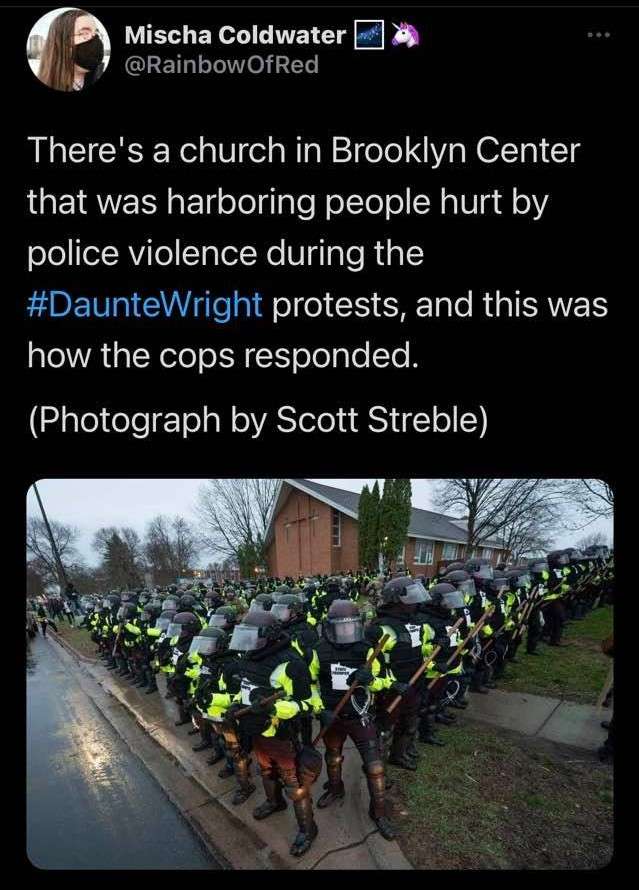 Since George Floyd died while in police custody in 2020, police reforms have proven uneven. The Washington Post, which has been monitoring on-duty shootings by police since 2017, reports that all of the social justice initiatives and protests surrounding the deaths of Black people at the hands of police have not generated change in the one worst statistic: Cops still shoot and kill African Americans at a higher proportion than any other ethnic group. It was reported that Black people are more than twice as likely to be killed by police than white people. On NBC, it was reported that black men make up 34% of all police killings while comprising only 6.5% of the U.S. population.
Since George Floyd died while in police custody in 2020, police reforms have proven uneven. The Washington Post, which has been monitoring on-duty shootings by police since 2017, reports that all of the social justice initiatives and protests surrounding the deaths of Black people at the hands of police have not generated change in the one worst statistic: Cops still shoot and kill African Americans at a higher proportion than any other ethnic group. It was reported that Black people are more than twice as likely to be killed by police than white people. On NBC, it was reported that black men make up 34% of all police killings while comprising only 6.5% of the U.S. population.
In one case, a 32-year-old black U.S. Navy veteran called the San Diego Police Department after being attacked in 2020. Stephen Keith stated that he was on his own property when a stranger approached and asked him for a cigarette. When Keith refused, the man attacked him despite Keith being on crutches from a knee injury. Keith alerted authorities that he had been assaulted and waited for police. When they arrived, four officers attacked him, knocking out his teeth and arresting him. Keith has filed a claim against the police department seeking damages of over $25,000 for injuries, pain and suffering, legal costs, lost wages and unspecified punitive damages. The filing states that “when the San Diego Police Department officers arrived on scene, they immediately tackled Mr. Keith to the ground and began brutalizing Mr. Keith. Prior to taking Mr. Keith to the ground, the officers did not direct any order towards Mr. Keith and Mr. Keith did not do anything to cause a reasonable peace officer to believe that any force used on Mr. Keith would be justified.” As recorded in the claim, the beating was brutal with one officer kneeing Keith in the back seven times. When he was then taken into custody, it was decided that he needed medical attention for broken teeth and his injured back. After leaving the hospital, he was brought to the city jail and then given a bond. He paid the bail and went home but was never charged with a crime by the San Diego County District Attorney’s Office. The San Diego Union Tribune reported that this incident happened a few months after the San Diego Police Department put in place a de-escalation policy in response to the George Floyd protests. It required officers to use de-escalation tactics if possible and to step in if another officer is using unneeded force. Studies show that officers who police communities of color tend to exercise a disproportionate amount of force compared to that used while policing white communities. This includes pointing a gun at a person, deploying pepper spray or a stun gun, using a baton or other use of force to apprehend a person.
Often, black citizens are targeted by police as suspects when no crime or infraction has occurred and there is no danger to the police or to the public. A Childersburg, Alabama pastor was arrested while watering his neighbor’s flowers. Video footage shows several witnesses who confirmed that he was supposed to be there but the officers refused to remove his handcuffs. Pastor Michael Jennings of Vision of Abundant Life Ministries, had returned home from service one Sunday and went to water his neighbor’s plants. Someone saw him and called the police, claiming an unfamiliar SUV was parked outside the neighbor’s house and that an unknown man was “lurking” on the property. As revealed by body camera footage, the officers approached Jennings asking him what he was doing at the house.
“Watering flowers,” Jennings responded. “I’m supposed to be here. I’m Pastor Jennings. I live across the street. I’m looking out for their house while they’re gone.” The police officer asks Mr Jennings to present identification, which Mr Jennings declined to do – telling the officer that he “did nothing wrong.” [In the absence of a reported, observed or suspected crime, officers do not have ‘probable cause’ to demand identification or detain a person who is not on public property] After less than two minutes of the recorded interaction, police officers took Mr. Jennings’ phone and handcuffed him. Shortly thereafter, police officers began screaming at Mr. Jennings that he must identify himself to them while Mr Jennings accused the officers of improper conduct. At that point, a white woman approached the scene telling the officers that he lived nearby, that he may well have had permission to be watering the flowers and that this is all her fault as she is the one who called the police. However, officers continued to tell Mr Jennings that he was a “suspicious person” and that he should have presented his identification when asked – even though he was not committing or suspected of a crime. According to the report, Jennings’ family also arrived to confirm his identity but the officers took him to jail and charged him with ‘obstruction of government operation,’ a charge which was dropped a month later but the arrest record will stay forever to impede his ability to get a loan, a job, run for office, or pass any background check, and all from an incident in which there was no crime or infraction. The pastor proceeded to prepare a discrimination lawsuit against the police department.
Just as the murder of Ahmaud Arbery is irrevocable, the guilty verdicts against his attackers show irrevocably that murder cannot replace justice when someone believes that wrongdoing has occurred. What needs to be learned from this and the Chauvin verdict is that when a black person is suspected of committing a crime, that person should be arrested and tried just as these defendants were. If Ahmaud Arbery was suspected of burglary, he should have been arrested, investigated and tried in court—not murdered in the street. If Travon Martin was suspected of stealing, he should have been arrested, investigated and tried in court—not murdered in the street. If Breonna Taylor was suspected of criminal behavior, she should have been arrested, investigated and tried in court—not executed by police in a hail of bullets inside her own home. If George Floyd was suspected of passing a counterfeit $20 bill, he should have been arrested, jailed, investigated and tried in court—not murdered on the spot by police. Compare those cases to that of white Kyle Rittenhouse who announced to on-scene police that he had just shot three people killing two of them. He was never arrested but was instead sent home to Illinois and later was asked to return to Wisconsin where he was tried and acquitted. Ahmaud, Travon, Breonna and George were afforded no such opportunity to be possibly found innocent in a court of law.
In a public acknowledgement of systemic racism in law enforcement, VA Gov. Ralph Northam’s posthumous pardons for seven Black men acknowledged the extreme racism that permeated his state’s legal apparatus from 1908 to 1951, a period in which 100% of those executed for rape were black. Does this indicate that all rapes in that state during those 44 years were committed by Blacks or was convicting black men the only road to “justice” sought by law “enforcers”? Did this exclusive killing of black men both result from and reinforce the racial stereotype? Did these executions make the state’s women safer or did it heighten the danger to the state’s victimized women by removing the death penalty as a deterrent to white rapists? Although the U.S. Supreme Court reinstated the death penalty in 1976, that same court recognized the racial disparity and ruled in 1977 that the death penalty was cruel and unusual punishment for rape. Virginia later abolished the death penalty entirely.
There are many who contend that there is no basis to believe that police officers purposely target black citizens. However, just four days after a white Minnesota policeman shot and killed a law abiding black motorist when the driver started to comply with the officer’s order to “Show me your driver’s license,” Georgia police Lt. Gregg Abbott was recorded on video telling a fear-ridden female detainee “But, you’re not black. Remember, we only shoot black people. We only kill black people, right?” In Tacoma, WA, Manuel Ellis was punched, choked, hog-tied and hooded by police who knelt on him until he was dead. Juanisha Brooks was pulled over and handcuffed in 2021 when no crime or infraction had been committed. When Nakia Porter pulled to the side of a deserted road to change drivers during a family road trip, California officers handcuffed her, knocked her unconscious and slammed her to the ground. In a 2022 case, Tremar Harris was in solitary confinement in an Appling County Georgia jail on a misdemeanor charge of possession of a drug related object when Officer William Rentz “excessively” shocked him inside his cell with a “shock shield” before restraining him to a chair and leaving him for hours. When Harris managed to free his right arm, four Appling County Jail corrections officers entered the cell to secure him again according to the federal lawsuit. Rentz, who was one of the four, wrapped a leg restraint chain around Harris’ neck pulling it against his throat for about 4 seconds before releasing it, according to a complaint filed in the Southern District of Georgia. The complaint includes a photo from jail surveillance footage showing Rentz standing over him holding the chain and the three other officers, Daydan Brannon, Cannon Mcleod and Ansley Fennell, watching with no attempt to stop or report the “unlawful use of force.” The complaint also quoted Rentz as saying: “Gonna put you back in the cotton field with the other boys” in an apparent reference to slavery. Rentz was fired after the incident and later was arrested and indicted in 2023 on charges of battery and violation of oath by a peace officer.
Profit Motives In Policing
Another systemic interrelationship was outlined in a 2022 CNN Special Report entitled “Traffic Stop: Dangerous Encounters.” In addition to heavily disproportionate numbers of stops, searches and use of force targeting black drivers, it was revealed that in police precincts such as those in historically redlined sections of major cities where property values are low, property tax revenue also is low. This not only results in underfunded schools and infrastructure, it also forces police departments to raise a substantial percentage of their finances from other sources, primarily traffic stops. It was explained that there are what are referred to as “pretext stops” used to pull drivers over in order to extract fines needed to meet budget objectives. Some individuals were reported to have been pulled over up to 50 times. One St. Louis County, MO mother who was interviewed reported being locked up at least ten times for ignoring traffic ticket fines in order to pay rent or her child’s school expenses. She also said her fines over the years totaled over $10,000.
The New York Times reported that there are “more than 730 municipalities across the U.S. that depend on tickets and fees for at least 10% of their revenue.” The U.S. Department of Justice exposed the practice in their 2015 report Investigation of the Ferguson Police Department following the police killing of Michael Brown. In 2014 alone, there were 33,000 arrest warrants in the city of only about 22,000 residents. The report concluded that the department’s policing “reinforces racial bias” and that officers “saw people as potential offenders and sources of revenue.” By 2019, Ferguson warrants had dropped to just under 4000. In 2014 in St. Ann, MO, also contiguous with St. Louis, ticket fines, court cost fees and jail bond payments totaled $3.3M before a law suit prompted changes in their policing practices. This resulted in an 87% drop to $426K by 2019 according to data from Missouri Courts.
Mass Incarceration with Involuntary Servitude
Another systematic victimization of black and poor citizens stems from the purposed wording of the 13th Amendment which has fostered a very lucrative partnership between police, corrections facilities and corporate industry. That partnership dates back to Reconstruction times when post-Civil War white landowners sought ways to return blacks to the very farms and plantations from which they had been freed following the war. The answer was to criminalize black life itself through creation of the “misdemeanor system” which criminalized nonviolent, nonthreatening behaviors and gave police officers more ways to get black people under control of the criminal justice system. The program “Racially Charged” on Free Speech TV (FSTV) reported in 2024 that John Clark was arrested on a misdemeanor gambling charge and forced to work on a chain gang. Henry Nelson was arrested for “using abusive language in the presence of a female” and was forced to work in coal mines. In another scene, a black man is seen being handcuffed by a white policeman who argued that what he did illegal was, “You crossed the crosswalk.” It was stated that “the story of misdemeanors is the story of law enforcement continuing to prioritize African-Americans, Mexican emigrants, America’s so-called ‘criminal class’.” That same FSTV show reported that “80% of what our criminal courts do is misdemeanors.”
Misdemeanor arrests have been effective in supplying the mass incarcerations needed to constantly supply the free prison labor from which their business partners profit. This is facilitated by the amendment’s purposeful wording that allows slavery or involuntary servitude, “as a punishment for crime whereof the party shall have been duly convicted.” Consequently, regardless of the strides made by the rest of society in allowing black men to become respectable and accomplished citizens, the result is that the U.S. has the highest per capita prison population in the world with over 40% if its inmates comprised of black men despite their making up only 6.5% of the U.S. population. Despite Although the 13th Amendment’s requires that they be “duly convicted,” over 97% of those in prison never went through a trial. They are instead awaiting trial for extended periods of time or are persuaded to accept a plea bargain for a certain number of years in prison even if innocent in order to remove the threat of a much longer sentence if convicted in a trial. Public acceptance of this biased system is achieved with the help of media outlets continuing to portray blacks as dangerous “criminals” who can only be controlled through “law and order” policies that put them away to serve long sentences doing free labor.
The system works as follows: A group known to law and corrections insiders as the American Legislative Exchange Council (ALEC), is funded and guided by major global corporate members like Bayer and Walmart and state politicians who vote behind closed doors to rewrite laws that govern individual rights and public policy in ways that benefit those corporations. ALEC has therefore played an instrumental role in the explosion of the U.S. prison population by pioneering tough sentencing laws like mandatory minimums for non-violent drug offenders, “three strikes” laws, and “truth in sentencing” laws that require specific jail time. These laws remove from judges any consideration of individual circumstances when deciding on sentences. Recently, ALEC proposed innovative “solutions” to the overcrowding it helped create, such as privatizing the parole process and passing state laws to create private for-profit prisons, a boon to two of its major corporate sponsors, Corrections Corporation of America and Geo Group, the largest private prison firms in the country. While taxpayer money is used to fund huge long-term contracts to house and supervise prisoners, other companies profit by supplying food and other necessities to each prison and hundreds of additional companies profit from the slave labor used to produce and package their products. This is how ALEC helps private corporations make billions from the country’s massive prison population.
Any effort to correct systemic racism in America must include changes in the use of mass incarcerations to provide involuntary labor during long sentences to support private for-profit prisons and double-digit enhancements in police department budgets. With the advent of open housing in all areas of a city, it will not be possible to isolate, stereotype and victimize any one ethnic group.
Police Misconduct
More than unemployment, crime, homelessness or food insecurity, the one most feared aspect of life in redlined black neighborhoods is contact with the police. There are uncountable undocumented as well as documented encounters between black residents and police officers which, regardless of whether a crime or misdemeanor has occurred, have ended in violence that injured, killed or ended the livelihood of the detainee. Michael Brown, for example, was killed when he was stopped in Ferguson, MO, for walking in the street instead of on the sidewalk. Until the availability of video recording of those encounters, the courts and the media relied excessively on the accounts provided by police, although judicial review of those recordings has not resulted in any substantial increase in prosecution of officers for excessive or unnecessary use of lethal force against detainees.
In 2020, a video recording of a violent arrest did garner substantial publicity by revealing to everyone the killing of George Floyd as it was occurring at the hands of Minneapolis police officers. Far less public coverage has been given to his treatment by law enforcement prior to those accusations. While living in Texas, Floyd was targeted by Houston Police Officer Gerald Goines who accused him of purchasing illegal drugs. The charge resulted in Floyd taking a plea bargain in which he pled guilty to buying $10 worth of crack cocaine for which he spent 10 months in jail although evidence developed since that time has established conclusively that he did not make the buy. “We recognize that the community has been violated and I want to assure my fellow Houstonians and other residents of Harris County that we are getting to the truth,” Harris County District Attorney Kim Ogg said at a news conference. “Each day we uncover more and with each fact, we work toward doing justice.”
A disturbingly consistent factor in misconduct cases is the failure of departments across the country to fire or avoid hiring officers with known records of excessively violent or racist behavior. Derek Chauvin, for example, had at least 17 complaints filed against him prior to the encounter in which he ended Floyd’s life. However, no discipline resulted and only 2 cases generated letters of reprimand despite formal complaints describing use of excessive force when restraining people by their necks or by kneeling on top of them. This type of behavior should be understood as systemic and by no means unique to the Minneapolis area. To illustrate, John Neville drew his last breath to plead that he could not breathe while being knelt on by North Carolina police officers who laughed and sang “Amazing Grace.”
In a 2023 public statement in the Kansas City suburb of Pleasant Hills, the police department apologized for hiring Jacob Smith who had posted on social media about decapitating black people. After he and another cadet were sworn in during a City Council meeting and their pictures were shared on city and police department profile pages, someone recognized Smith and brought forward his old social media posts from one month prior to his hiring. In addition to racially insensitive content, homophobic memes were revealed which led to his termination only two days after being sworn in.
In a 2021 investigation, offensive text messages exchanged between police officers in the Los Angeles suburb of Torrance, California, have been exposed revealing systemic discriminatory practices within the department. The Los Angeles Times broke the story about former officers who were charged with conspiracy and vandalism in connection with a swastika spray-painted inside of a citizen’s car. Officers Cody Weldin and Christopher Tomsic were not only fired, but the case provided the first look at text messages between them and other officers featuring offensive humor centered on themes of race, religion, and sexuality. The texts included anti-Semitic jokes, threats to assault members of the LGBTQIA+ community, and photos of Black men being lynched with the tagline “hanging with the homies.” These types of exchanges were shared between more than a dozen officers who were placed on unpaid leave pending the full investigation by local and state attorneys’ general offices. California Attorney General Rob Bonta stated “The reports are very disturbing and we are committed to going wherever the facts lead and making sure we remedy the situation and get the Torrance Police Department on a corrective course of action.” The L.A. Times reported that in 1996, the DOJ had investigated the Torrance Police Department and found that rookie cops were instructed to profile Blacks and to use acronyms when talking about them. The feds discovered the use of “two epithetic slogans … commonly used within the department. NIT stands for ‘N-gger in Torrance,’ they said; NITAD stands for a Black person spotted in Torrance ‘after dark.’” Testimony from one officer in the filing stated that rookies were told in training that there were two categories of African Americans: “street n**gers” or “upstanding Black citizens.” He also revealed that officers were told to pull over minority motorists for “no reason.” These gatekeepers of systemic racism know that such stops often lead to arrest records which follow the detainee for life impeding his every attempt to succeed.
Mistreatment in Jails and Prisons
When a black person does become an inmate in a city or county jail, they may remain there for a short or extended period before being tried, sentenced, plea bargained or transferred to a state or federal prison. In either of those settings, that person is subject to being controlled by the guards and other staff throughout their incarceration. Without proper oversight, that control often involves improper, illegal, and even lethal treatment. For example, Wakiesha Wilson died in a Los Angeles jail cell and Sandra Bland had just signed a contract to begin teaching as a college professor but was hanged in a police station jail cell after she was seen on police dash cam and on her own cell phone video being attacked in her car and threatened with a taser for smoking a cigarette while the policeman wrote her a ticket for not signaling a lane change. Also, black veteran paratrooper and father of two Everett Palmer, Jr., was taken to the police station in York County, PA, due to his DUI record but he was put in a cell where his life was taken. When his family was given custody of the body, three of his organs including his brain were missing. However, an investigation by the Office of the District Attorney found no infractions by law enforcement personnel.
In 2024, the federal Bureau of Prisons announced that at least one California women’s prison, FCI Dublin, where inmates have been subjected to sex abuse, would be closed. The Associated Press reported that despite attempted reforms at the facility, it had become known as the “rape club” after an investigation exposed rampant staff-on-inmate sexual abuse. Eight FCI Dublin inmates have sued the Bureau of Prisons, alleging the agency had failed to root out sexual abuse. Amaris Montes, a lawyer for the plaintiffs, said inmates faced retaliation for reporting abuse, including being put in solitary confinement and having personal belongings confiscated.
Confronting Law Enforcement Transgressions
As reflected in the above statements made by Abbott and Northam, many in law enforcement believe that their real purpose is to use the law to remove black people from society to prevent them from achieving equal status with whites in society. For those who do manage to survive police surveillance frequent traffic stops, and police misconduct, the system is designed to ensnare them at the least misstep. In the above cited FSTV video, it was stated that “Too often, arrests for minor crimes devolve into police violence and death for black and brown people” totaling about 13 million such arrests per year. It is that very situation that more and more police departments across the country are taking steps to correct:
Newark, NJ, in 2016, changed its policing style by passing a Consent Decree that adopted a Public Safety approach with a Public Safety Director. In the immediately following years, crime went steadily down until, in all of 2020, no police officer fired even one shot. Old entrenched policing practices reflecting racial bias, stop-and-search arrests and excessive force were replaced with de-escalation and anti-bias training, hiring of more social workers and diversification of police personnel. A Newark Community Street Team was trained and deploys Outreach Workers to mediate high-risk disputes, provide safe passage to and from school and community services and support. Since installing the new procedures, violent crime has been cut nearly in half despite the expectations and objections of those who wanted to sustain and intensify traditional militaristic practices.
Camden, NJ, population 77,000, was once considered one of the most dangerous cities in America. A depopulated former manufacturing center across the Delaware River from Philadelphia and the home of the first condensed Campbell’s soup plant, the city had more than 3,000 abandoned buildings. Almost 40 percent of residents lived below the poverty line. At one point, the city had 175 open-air drug markets and 80 percent of drug arrests were of nonresidents, suggesting that outsiders were stopping in Camden to buy and sell. Violent crime had been high in the city for decades, but it was about to get worse, because the police department ran out of money. In 2010, Camden, faced with a $14 million budget deficit, laid off half of its police force. Arrests in 2011 fell to almost half of what they had been just two years earlier and burglaries increased by 65 percent. The murder rate skyrocketed. Eventually, people largely gave up on calling police for minor crimes. The police were despised by residents for being ineffective at best and corrupt at worst. The department had a reputation for bad cops. Of the 37 excessive use of force complaints levied in 2011, not one had been “sustained” or clearly proven or disproven, which raised serious red flags about accountability with the executive director of the American Civil Liberties Union in New Jersey. In 2010, five officers in the department were charged with evidence planting, fabrication and perjury. Later, state and federal courts overturned the convictions of 88 people who had been arrested and charged by those officers.
Recently, Camden celebrated a milestone. “Crime is down to our lowest level in 50 years. This success isn’t by accident,” said Camden Mayor Vic Carstarphen. “We’re seeing a reduction in crime because our police force is one that represents our community.” Carstarphen was speaking as city and county leaders gathered to commemorate the 10-year anniversary of the transformation of Camden’s police department. “In 2022, there were 3,000 less victims of crime in Camden City than there were in 2012,” said Lou Capella, Camden County Commission director. “We actually dissolved an existing police force, created a new one that began on May 1, ten years ago.” When officials actually confronted their long history of racially unjust, violent enforcement back then, Camden really did abolish its police department, overhaul its police force and change how it operated. The idea for dissolving the Camden police force came amid a push by both Republican Governor Christie and Democratic state lawmakers to regionalize city and town services in a new era of government austerity. State Sen. Don Norcross, Camden County Freeholder Lou Cappelli and Mayor Dana Redd started promoting the idea of dissolving the Camden police force and creating a new county-led force to replace it. This required rebuilding the police force anew under county control, using the opportunity to increase the number of cops on the streets and pushing through a number of now-heralded progressive police reforms that produced real changes. Union contracts were thrown out, leaving many on the force earning a lower salary with fewer benefits. Joseph D. Wysocki, who was chief of the Camden police, fired himself and reapplied under the new guidelines. The excessive use of force rates plummeted. The homicide rate decreased. Bold new incentives laid the groundwork for a completely new understanding of what it meant to be a good cop. “You had to change the underlying principles of the way police officers were being trained and taught, and the culture in the department,” said former New Jersey Governor Chris Christie, who supported the changes in Camden. “The most effective way to do that was to start over.” Today, violent crime in the city has decreased, and police officers are a regular presence at community block parties. Camden has become an example of reform that works—cited in articles, tweets and on network shows as an example of what can go right.
Boston, MA created a Racial Equity Fund in June 2020 to increase the safety, well-being, equity, and prosperity of the Black and Brown community. By May of 2021, the fund had distributed $16.2 million in funding, with 40% of the grants led by a person of color and 63% led by women.
On June 11, 2020, Boston Police Commissioner William Gross announced completion of a review of Boston Police’s policies against the recommended use of force policies, resulting in clarified rules and the implementation of several reforms. That same month, Mayor Martin Walsh created a new Boston Police Reform Task Force made up of an independent group of community members and chaired by former U.S. Attorney for the District of Massachusetts Wayne Budd. The group was charged with reviewing Boston Police’s use of force policies; recommending rigorous implicit bias training for police officers; improving the current Body Worn Camera program at Boston Police; and strengthening Boston’s existing police review board, known as the Community Ombudsman Oversight Panel or Co-op Board. As part of Mayor Walsh’s Fiscal Year 2021 budget, he allocated 20%, or $12 million, of the Boston Police Department’s overtime budget to make a significant investment in equity and inclusion across the city. On June 30, Walsh signed an ordinance banning face surveillance technology, which protects community members from racial bias as a result of this technology.
In October 2020, the Boston Police Reform Task Force released their recommendations for reform, which included: 1. Create an independent Office of Police Accountability and Transparency with full investigatory and subpoena power, i.e. the ability to call witnesses and to compel the discovery of documents. 2. Formalize and expand the BPD’s commitment to diversity and inclusion through the creation of a Diversity & Inclusion unit. 3. Expand the BPD’s adoption of the body-worn camera program and continue to ban the use of biometrics and facial recognition software. 4. Enhance the BPD’s Use of Force policies (Rule 303, Rule 303A, Rule 303B, Rule 304) to articulate a clear and enforceable disciplinary code of consequences for violations and infractions and hold the BPD publicly accountable for the violation of these policies. 5. Adopt practices that maximize accountability, transparency and public access to the BPD. In November 2020, Walsh signed an Executive Order to reconstitute Boston’s Community Ombudsman Oversight Panel and transform it into a stronger Internal Affairs Oversight Panel. The order created Boston’s first Civilian Review Board of its kind with a nine-member board made up of community members nominated by the City Council and the Mayor’s Office. The mayor also filed an ordinance to create a new independent Office of Police Accountability and Transparency, which passed in city council the following month. Mayor Walsh also signed on to the “Reimagining Policing” pledge for mayors and local officials issued by the Obama Foundation’s “My Brother’s Keeper Alliance.”
4: Systemic Racism in Health Care
 In most cities where the remnants of redlining remain in evidence, residents of those areas are forced to deal with structural difficulties in obtaining healthy living conditions with access to consistently effective health services. Those difficulties include multiple obstacles such as food insecurity, environmental hazards, added stress from income challenges and threats of violence amid criminal activity under law enforcement surveillance, lack of nearby hospitals, doctors’ offices or dental clinics, little or no affordable private health insurance, abnormally high unemployment with limited employer health insurance coverage, and racial bias permeating all aspects of the health care system.
In most cities where the remnants of redlining remain in evidence, residents of those areas are forced to deal with structural difficulties in obtaining healthy living conditions with access to consistently effective health services. Those difficulties include multiple obstacles such as food insecurity, environmental hazards, added stress from income challenges and threats of violence amid criminal activity under law enforcement surveillance, lack of nearby hospitals, doctors’ offices or dental clinics, little or no affordable private health insurance, abnormally high unemployment with limited employer health insurance coverage, and racial bias permeating all aspects of the health care system.
Racial stereotyping in educational materials, media programming and news reporting also has negative effects on both quality of health care and access to medical resources available to people of color in America. For example, a black woman in Florida, Chrystle Galloway, went into a coma and died after two white ambulance employees refused to assess or transport her to a hospital because they believed she could not pay the bill, later claiming that they could not locate her. These tragic responses stem from media implanted biases against those who are stereotyped as undeserving of access to available resources. As will be seen in this section, what health care resources are available are administered in ways that result in clear disadvantages to people of color who carry the burden of health disparities.
Health Disparities
A “health disparity” refers to a higher burden of illness, injury, disability, or mortality experienced by one group relative to another. A “health care disparity” typically refers to differences between groups in health insurance coverage, access to care, use of health resources, and quality of care. Large disparities in health insurance coverage related to race and ethnicity are a long-standing feature of the American health care system and continue to be a cause for concern among some policymakers and health care professionals. Several studies have identified these differences in coverage as an important determinant of disparities in access to care. In addition, a growing body of literature shows that by reducing exposure to large medical expenses, health insurance leads to better financial outcomes, such as improved credit scores and reduced risk of bankruptcy.
It is clear that the problem of racially biased health disparities must not be approached as an isolated issue involving only access to and quality of medical services. Perhaps the best way to illustrate that principle is to look at the study done by the Annie E. Casey Foundation entitled “Race for Results: Building a Path to Opportunity for All Children” in which states were scored and ranked on factors from educational access to economic status to home life. The worst state for raising black children was Wisconsin which ranked lowest of all states in its ability to prepare black children for educational and financial success. There also is an immense difference in economic security levels between children of different races in that state. While 70% of white children live in households over 200% of the federal poverty level, only 20% of black children live in similarly resourced homes. The implications of this difference were noted in the report’s statement that, “Research has shown that growing up in chronic poverty contributes directly to stress at a level that can affect children’s health, brain development and social and emotional well-being — a response known as ‘toxic stress.”
Bias In Health Care Systems
One response by POC in many cities has been to encourage more black and brown people to become health care professionals themselves in order to possibly impact the health care system from within. For example, the New York City comptroller reported that seventy-five percent of all frontline workers during the coronavirus pandemic were people of color. New York City Health Commissioner Dr. Oxiris Barbot said, “This virus is not hitting New Yorkers equitably,” His office reported that during the height of the coronavirus pandemic, Black and Latino people were hospitalized at twice the rate of Caucasians according to data released by the City of New York. Black New Yorkers were hospitalized at a rate of 632 per 100,000 people, followed by Latinos (570 per 100,000 people), while Caucasians were hospitalized at a rate of 284 per 100,000 people. “We’re seeing this around the country,” New York Gov. Andrew Cuomo said at the time, when the figures on racial disparity became available at the beginning of the public-health crisis. He said the same pattern was found in major cities across the U.S. with some worse than New York City. “You know, it always seems that the poorest people pay the highest price. Why is that?”
As shown, becoming health care delivery personnel does not correct systemic differentiating factors that even they as professionals cannot control. For example, researchers have found that a widely used health care algorithm that helps determine which patients need additional attention has a significant racial bias, favoring white patients over blacks ones who were sicker and had more chronic health conditions, according to research published in the journal Science. The bias was detected in the algorithm created by health services company Optum, based in Eden Prairie, Minnesota, one of many data-driven services whose utilization functions to perpetuate disparities in medical treatment. “The risk is that biased algorithms end up perpetuating all the biases that we currently have in our health care systems,” said Ziad Obermeyer, an acting associate professor at the Berkeley School of Public Health who was the lead researcher on the study. “It furthers the vicious cycles that we all want to break.” Despite Optum’s intentional exclusion of race as a variable, the bias occurred because the algorithm used heath costs to predict and rank which patients would benefit the most from additional care. About 6,000 self-identified blacks and nearly 44,000 self-identified whites participated as subjects although the black patients had 26.3 percent more chronic health conditions than equally ranked white patients. “We already know that the health care system disproportionately mismanages and mistreats black patients and other people of color,” said Ashish Jha, director of the Harvard Global Health Institute. “If you build those biases into the algorithms and don’t deal with it, you’re going to make those biases more pervasive and more systematic and people won’t even know where they are coming from.”
At the root of the cost disparity are the disproportionate levels of poverty that black families and individuals face, Obermeyer said. Cost is not a “race-blind” metric, and using it as a screening tool for high-risk patients led to the disparity the researchers found in Optum’s algorithm because black patients access health services less than wealthier white patients do. Therefore, black patients spent $1,800 less in medical costs per year than white patients with the same chronic conditions, leading the algorithm to conclude incorrectly that the black patients must be healthier since they spend less on health care. Obermeyer said that “simply because you left the race variable out of the model does not guarantee by any means that your algorithm will not be racist.”
Health Inequities Across States
A report by The Commonwealth Fund called the “Health Equity Scoreboard” found health disparities along racial lines in every state, even those with traditionally stronger health systems. These health disparities existed even after controlling for income. “It’s unfortunate that people are still surprised at this,” said Linda Goler Blount, president and CEO of Black Women’s Health Imperative. “At its core, these social determinants of health are racism and discrimination.” Health experts agree with study authors that the way to improve health equity is to ensure affordable, comprehensive health insurance for all, strengthen primary care, lower administrative burdens for patients and invest in social services. Blount said it is important that hospitals hire more physicians of color, as data shows Black and Hispanic patients have better outcomes when treated by doctors of similar race and ethnicity. “The awareness stuff is great, but unless we change the behavior of providers and the health care system and people in the workforce, we’re not going to see these numbers change,” she said. “We don’t need to describe it anymore, we need to change if we’re ever going to make progress.”
The study used 24 data points to measure performance in health outcomes, access to care, quality and use of health care services. “The scorecard explores a vital question: Are people of color having different experiences than white people within the same health care system?” said Dr. David Blumenthal, president of the Commonwealth Fund. “Almost always the answer is yes.” The report found only six states with health care systems that performed above the national average for all racial and ethnic groups: Massachusetts, Connecticut, Rhode Island, New York, Hawaii and Oregon. White people still received better care in these states compared with people of color. States where white residents received the best care in the country – Minnesota, Maryland and Connecticut – were also states where people of color received some of the worst care. Some Midwestern states, such as Wisconsin and Minnesota, have long had strong health care systems but were found to have some of the largest racial inequities. Minnesota was the worst state for health outcomes among Hispanic patients. Black people experienced the best health outcomes in Colorado and the worst in West Virginia. In Mississippi and Oklahoma, states with health care systems that historically performed poorly among all racial and ethnic groups, white patients received far better care. Researchers examined premature mortality for racial and ethnic groups. In every state but Maine, they found Black people were more likely to die early in life from conditions that are treatable with timely access to high-quality care.
Though some do better than others, the comprehensive report of 2019 and 2020 found health equity does not exist anywhere in the USA (see und.org/publications/scorecard/2021/nov/achieving-racial-ethnic-equity-us-health-care-state-performance). Health status varies widely across and within states and tends to reflect access to health services and overall quality of care.5 Large racial and ethnic health inequities are driven by factors both inside and outside the health care delivery system. In many communities of color, poverty rates are higher than average, residents tend to work in lower-paying jobs, and they are more likely to live in higher-risk environments. All of these factors were contributors to the disproportionately high impact of COVID-19 on people of color according to studies published in 2020 in the Journal of the American Medical Association and the American Journal of Public Health.
According to a 2021 study published in the New England Journal of Medicine, racially biased policies built into the American system of structural racism are the root cause of racial health inequities. Decades of policy choices made by federal, state, and local leaders have led to structural economic suppression, unequal educational opportunity, and residential segregation, all of which have contributed in their own ways to worse health outcomes for many people of color according to “Achieving Racial and Ethnic Equity in U.S. Health Care: A Scorecard of State Performance” published online by the Commonwealth Fund. The failure to ensure that all Americans have reliable health coverage has paved the way for inequitable access to health care. The report by the Commonwealth Fund stated that structural racism persists in all states leading to dramatic disparities that are tolerated in the quality of health care. It also pointed out that some state policy makers refuse to take actions that could alleviate health inequities such as expanding Medicaid eligibility as allowed by federal law. Instead, they prefer to continue to permit issues such as cost, affordability, and poor physical access to contribute to the disparities experienced by citizens of color who already are less likely to have health insurance, more likely to face cost barriers to obtaining health care, less likely to receive preventive care, more likely to incur medical debt, and more likely to encounter racism and personal discrimination in dealing with clinicians who often will dispense lower quality care. The study found that even in states with high performance scores overall such as Minnesota which ranked third in the most recent State Scorecard on Health System Performance, some of the largest health disparities existed between white and nonwhite resident communities.
Health experts agree with study authors that the way to improve health equity is to ensure affordable, comprehensive health insurance for all, strengthen primary care, lower the administrative burden for patients and invest in social services. Communities that are predominantly Black and Latinx/Hispanic tend to have fewer primary care providers and lower-quality health care facilities than communities that are mostly white. Federal and state policymakers could start to reverse these inequities by raising payment for primary care providers and transitioning primary care reimbursement to value-based payment that enables investment in health promotion, disease prevention, and chronic disease management. For example, North Carolina now has a prospective Medicaid payment model that emphasizes primary care–based population health management, while Oregon and Washington are linking Medicaid payments to performance on equity measures. [See: Zinzi D. Bailey, Justin M. Feldman, and Mary T. Bassett, “How Structural Racism Works — Racist Policies as a Root Cause of U.S. Racial Health Inequities,” New England Journal of Medicine 384, no. 8 (Feb. 25, 2021): 768–73; and Jamila Taylor, Racism, Inequality, and Health Care for African Americans (Century Foundation, Dec. 2019).]
Racism: A Public Health Crisis
In 2023, three U.S. Senators, Alex Padilla of California, Sherrod Brown of Ohio, and Cory Booker from New Jersey, introduced a Senate Resolution to declare racism a “public health crisis.” The resolution acknowledges the history of racism and discrimination within health care and the systemic barriers that people of color continue to face when seeking care. It also highlights the effects of systemic racism on the health of communities of color resulting in shorter life expectancy, worsened health outcomes, and enhanced exposure to dangerous and harmful environmental hazards. The resolution encouraged concrete action to address health disparities and other inequities built into all sectors of society. “Over generations, racism and its compounding impacts have harmed the health and well-being of communities of color across America,” said Senator Padilla. “Our resolution declaring that racism is a public health crisis is a first step toward bringing more attention to these deep-rooted inequities, but there is much more work to be done. This resolution must serve as a catalyst in the urgent need to address these disparities and deliver justice for millions of Americans.”
“This resolution is an important step toward recognizing the racial disparities in healthcare that have existed for far too long, while also outlining concrete action we can take now to help reverse them,” said Senator Brown. “Your background or the color of your skin shouldn’t determine whether you get quality, respectful care, or whether your air and water are clean, or whether there’s a good hospital nearby. This declaration will help to lay the foundation for change, so that all Americans can live longer, healthier lives.” Senator Booker said, “Across the United States, communities of color continue to be disproportionately affected by negative health outcomes, from chronic diseases to maternal and infant mortality. These health inequities stem from years of discriminatory policies that have disenfranchised, neglected, and disrespected Black, Indigenous, AAPI, and other communities of color. Declaring racism a public health crisis is a small, but vital, step toward raising awareness around the racial health disparities in our country and addressing the systemic inequities affecting communities of color.”
National Centers for Disease Control: Ten weeks after becoming CDC director in 2021, Dr. Rochelle P. Walensky, MD, MPH, declared racism a serious public health threat that directly affects the well-being of millions of Americans. She declared that because of its effects on so many, it affects the health of the entire nation. The CDC has long recognized that racism is the root cause of many health disparities. This declaration announced that the organization was rededicating its efforts to the work of addressing the challenges driven by structural factors such as racism, discrimination, and historical disenfranchisement that overwhelmingly impact so many of the communities in which people of color live. As part of that commitment, the CDC developed their CORE Health Equity Strategy which resolved to create comprehensive health equity science, optimize interventions, reinforce existing partnerships while creating new ones, and to enhance workforce engagement. She promised to implement an agency-wide strategic process to make sure health equity, and the elimination of health inequities, are central to their work and that every center, every division, and every program will be advancing these efforts. She believed that this work will holistically transform the way we approach public health – within the agency, across the nation, and around the world.
Each part of the agency submitted their health equity science and intervention goals that describe how they will study the drivers and impacts of social determinants on health outcomes, expand the body of evidence showing what interventions will reduce the inequities that affect health, and invite partners from multiple sectors who can collaborate to implement solutions. She reported that, “The submissions were impressive and are a testimony to our ability to weave health equity into every program at CDC and to implement transformative actions that will advance health equity for all in our country and beyond. For example, our Center for State, Tribal, Local, and Territorial Support has committed that by October 2022, they will increase the proportion of Public Health Associate Program assignments that focus on underserved areas and/or work with populations who are underserved. This includes racial and ethnic minority populations.”
The National Center on Birth Defects and Developmental Disabilities Division of Birth Defects and Infant Disorders was tasked to address health disparities among Hispanic/Latina women of reproductive age in the US by assessing the awareness of folic acid fortification of corn masa flour, and other interventions, for the prevention of neural tube defects. By December 2025, the Office of Women’s Health will collaborate with internal and external partners to develop and implement strategies and policies that address gendered racism and gender discrimination in the workplace in redoubled efforts to promote health equity. Dr. Walensky declared, “These are just four of the more than 150 commitments made across CDC that implement what we know works, focus on what is observable and evaluable, and push us beyond our status quo to ensure we drive innovative action and continue to lead in advancing health equity.”
American Public Health Association: Prior to the CDC declarations, Dr. Camara Jones, President of the APHA, launched a national campaign against racism in 2016. Racism was defined as a system of structuring opportunity and assigning value based on the social interpretation of how one looks (which is what we call “race”), that: a) unfairly disadvantages some individuals and communities, b) unfairly advantages other individuals and communities, and c) saps the strength of the whole society through the waste of human resources.
Wisconsin: Inspired by the work of Dr. Jones, the Wisconsin Public Health Association, in 2018, became the first state level agency in the nation to pass a resolution declaring racism a public health crisis. In 2019, Milwaukee County became the first government jurisdiction in the nation to declare racism a public health crisis. In 2020, an ordinance was passed unanimously by the County Board and signed into effect with the intention of achieving racial equity, eliminating health disparities, and making Milwaukee the healthiest county in Wisconsin. It commits Milwaukee County government to identify and address policies, practices and power structures that, whether intentional or unintentional, work in favor or white people and create barriers for black, brown, and indigenous people. The ordinance ensures racial equity becomes a top priority of Milwaukee County government and remains larger than any one government leader. “Milwaukee County is on the right side of history. As Chairwoman, I will continue to ensure our policy decisions at Milwaukee County are made with an eye toward racial equity. Our departments will begin to submit budgets using a racial equity budget tool. The Racial Equity Budget Tool is a structured racial equity lens for departments to critically assess the impacts of budget decisions on communities of color. It’s an opportunity to constantly ask ourselves, who benefits and who burdens from the decisions we make,” said County Board Chairwoman Marcelia Nicholson.
The new ordinance was passed with awareness that Milwaukee ranks 2nd in the American City & County ratings of the “worst cities for Black Americans” and 3rd just behind Racine, WI in that same ranking by 24/7 Wall St. There are significant health disparities for Milwaukee County residents along racial lines, which impacts community health overall. The 2020 County Health Rankings show Milwaukee County is ranked 71 out of 72 counties for health in the state of Wisconsin. According to 2019 data from the Wisconsin Department of Health Services (DHS), a white person in Milwaukee County lives, on average, nearly 14 years longer than a black person. DHS data also shows the infant mortality rate for black infants is 14.2 per 1,000 births, nearly three times higher than the 4.8 deaths among white infants. Note that Wisconsin consistently ranks first just ahead of 2nd place Minnesota in rankings of the “worst states for Black Americans.” 24/7 Wall St. reports that the median income for Black households in Wisconsin is less than half that of white households, and that Black residents comprise 42% of the state’s prison population while making up only 6.3% of the state’s overall population. Black Wisconsin residents also are 12 times more likely than white residents to be incarcerated in a state or federal prison.
When local governments declare racism a public health crisis, they are defining and acknowledging the harm racism causes to the health and wellbeing of people of color. Using data, local leaders can describe the health impacts to people of color due to social determinates of health such as race, gender, socioeconomic status, education level and sexual orientation. By acknowledging the historical and contemporary effects of racism, leaders are being explicit about the unfair advantages people receive and do not receive based on skin color. These declarations also create a sense of urgency around the health of vulnerable populations in relation to the health care community’s response to infectious disease outbreaks and chronic diseases. Following the 2020 police killing of George Floyd and the subsequent nationwide marches and demonstrations over racially motivated violence, the number of declarations grew from 13 nationwide to nearly 200. By 2022, the number of declarations tracked by APHA reached 250.
Boston: The City of Boston’s long struggle with racism has included violent protests against school desegregation efforts and a persistent wealth gap between white and black residents. According to the Health of Boston Report, persistent disparities in health outcomes for Black and Hispanic Bostonians compared to white residents include birth outcomes, birth rates and known impacts of asthma, diabetes, hypertension, and other chronic conditions. In May 2020, then-Mayor Martin Walsh created a new COVID-19 Health Inequities Task Force to provide guidance to city officials on addressing inequities in data analysis, testing sites, and health care services for Black, Hispanic, Asian and immigrant residents.
On June 12, 2020, Mayor Walsh issued an Executive Order declaring Racism an Emergency and a Public Health Crisis. This declaration included a commitment to eight key strategies focused on addressing the impact that racism has on the lives of residents and their overall health. In his FY21 Budget resubmission to the Boston Public Health Commission, Mayor Walsh released funds by redirecting about $3 million of Boston Police Overtime funding for work related to the eight strategies to reduce racial health disparities in the city.
5: Dismantling Systemic Racism in America
Because systemic racism includes so many interdependent components, it cannot be disassembled by adjusting or removing just one part. It also requires that statements of determination to address its inequities be followed by immediate committed action to reverse racist policies and their resulting practices across all segments of its structure. According to Dedrick Asante-Muhammad, Senior Director of the Economic Department at the NAACP Financial Freedom Center, “It’s one thing to end segregation, but it’s another thing to talk about billions of dollars of investment.” Although higher education leads to higher employment and better wages, it “does not eliminate inequality,” Even highly educated black Americans cannot overcome centuries of segregation and outright discrimination. Racial justice campaigners say systemic change is needed to deal with systemic racism. They have long called for serious efforts to address needed changes in the justice system, law enforcement, the health-care system, the media, education system and throughout American society. They add that undoing a 400-year-old system of systemic racism in a society whose economy was built off of slavery and even has its roots in America’s policing will not happen overnight.
A major obstacle is the continuation of race-based residential segregation throughout the nation. Forced separation into separate living areas developed during late 19th century Reconstruction to shield whites from residential proximity to blacks. It continued into the 20th century when it was legitimized by federal government policy as described in Part 1 above. Although residential segregation became illegal with passage of the Fair Housing Act of 1968, it continues today through interconnected purposeful individual acts, institutional practices, and government policies. While the 2010 Census showed residential segregation at its lowest ever level, there has been little impact on the residential isolation of the vast majority of African-American citizens and the concentration of poverty in urban areas (Glaeser EL, Vigdor J. The End of the Segregated Century: Racial Separation in America’s Neighborhoods, 1890–2010. Civic Report. 2012;66 Retrieved from manhattan-institute.org website: http://www.manhattan-institute.org/html/cr_66.htm.)
Few factors do more to improve people’s livelihoods than access to good jobs. High employment rates contribute to higher incomes, better health insurance coverage, as well as lower poverty rates. When the United States invested in a middle class in the 1940s and 1950s, it was in a white middle class, explained Asante-Muhammad. The effects of this unwillingness to invest in the black community are clear in the racial economic outcome gaps. According to the Bureau of Labor Statistics, the national jobless rate for November 2023 was 5.8% nationwide. Among white Americans, the figure was 4.9%. Among black Americans it was 11.1%. In eight of the worst states for black Americans, the difference between black unemployment rates and that of the whole workforce was higher than the national difference. Black Americans in these states also tended to have higher poverty rates, lower incomes, and lower educational attainment rates than both their white peers and black residents in other states.
Boston: As part of Mayor Walsh’s Fiscal Year 2021 budget, he allocated 20%, or $12 million, of the Boston Police Department’s overtime budget to make a significant investment in equity and inclusion across the city. In February, 2021, the Boston Racial Equity Fund joined with the New Commonwealth Fund to collaborate on advancing racial equity and dismantling systemic racism in the City of Boston and Commonwealth of Massachusetts. Walsh resigned as mayor of Boston in March after being sworn in as the U.S. Secretary of Labor. Shortly thereafter, Acting Mayor Kim Janey signed an ordinance establishing Boston’s first Black Men and Boys Commission, made up of 21 Black men and boys who will advise the Mayor on issues specific to that group. In 2022, Boston passed a resolution apologizing “for the role played by the City of Boston in the trans-Atlantic slave trade and the ongoing detrimental impacts experienced by the Black people of Boston,” according to the resolution and a statement from the city [Racism as a Public Health Crisis: From Declaration to Action; https://www.apha.org/-/media/Files/PDF/topics/racism/From_Declaration_to_Action.ashx].
San Francisco: In February 2024, the city issued a formal apology to its Black residents and their descendants for decades of systemic and structural discrimination, targeted acts of violence and atrocities. During the last week of Black History Month, the 11 members of the city’s Board of Supervisors unanimously voted to pass a resolution that includes a formal apology and commits “to the rectification and redress of past policies and misdeeds,” the resolution states. Supervisor Shamann Walton, who introduced the resolution last fall as one of more than 100 recommendations from the city’s African American Reparations Advisory Committee, described it as “historic” and “long overdue,” according to a news release. “We still have a long way to go, however this is a first step to commit to the restoration of the ways racism has caused insult to Black humanity including San Francisco making a commitment to substantial ongoing, systemic, and programmatic investments in Black communities to address historical and present harms,” Walton said.
Though historic in nature, the apology is not a first for San Francisco. In 2022, coinciding with the Lunar New Year, the Board of Supervisors passed a resolution formally apologizing to its Chinese residents for discriminatory actions taken during the city’s storied history. San Francisco is the second major U.S. city to issue an apology to Black residents, after Boston passed their edict in 2022. In addition, the San Francisco resolution noted that nine states have issued apologies for their history of discrimination and violence. In 2023, the Board of Supervisors accepted a recommendation of a one-time payment of $5 million to eligible Black residents as part of a draft plan from the reparations committee. California Gov. Gavin Newsom called the recommendations “a milestone in our bipartisan effort to advance justice and promote healing.” Tinisch Hollins, former vice-chair of the African American Reparations Advisory Committee, said in a news release, “The San Francisco Reparations Plan outlines more than 100 additional ways for the City of San Francisco to demonstrate the sincerity of that apology by proactively creating pathways to equity for Black San Franciscans,” she said. “It should be used as a blueprint for the next century.”
While apologies may bring some comfort and serve to ease the stress levels of some of the nation’s Black citizens, and reparations payments may help overcome many financial barriers for some individuals, these measures will have no effect on the obstacles faced by the millions still trapped in isolated enclaves living under constant surveillance by ever-present uniformed and plain-clothed police in marked and unmarked vehicles armed with multiple ordinances aimed at outlawing many aspects of black life itself. Reparations to families do not suddenly provide the education, social skills, wisdom and expertise needed for long-term success in the American economy. As Williams and Mohammed have observed, racism at the level of individuals in society negatively affects health and economic status by creating a hostile environment, building negative stereotypes, fostering discrimination and building stereotype threats that generate internalized racism. [See Williams, D. R., & Mohammed, S. A. (2013). Racism and Health I: Pathways and Scientific Evidence. The American behavioral scientist, 57(8), 10.1177/0002764213487340. https://doi.org/10.1177/0002764213487340].
Williams and Mohammed also described institutional racism as having developed policies and procedures that have reduced access to housing, quality neighborhoods, educational excellence, employment opportunities and other desirable resources in society. Therefore, it is clear that thorough and lasting dismantling of Systemic Racism, first and foremost, necessitates removal of all barriers to housing access through implementation of Open Housing practices. Enforcement of open housing legislation currently on the books would do much to facilitate the dismantling of systemic racism. When any citizen of any ethnic heritage is allowed to obtain housing in any residential area of a city, it will provide that citizen with the chance to build household wealth through home ownership and its accompanying opportunity to build equity over time. Open housing also will allow children of color to attend schools that are not neglected or purposely underfunded due to depressed appraisal values found in today’s ethnically homogeneous neighborhoods. Diverse neighborhoods make surveillance policing more difficult although profiling still is practiced and results in black drivers and pedestrians being detained at many times the rates of white residents. It becomes impossible to target a specific racial group with higher food prices when stores serve diverse neighborhood clientele. Roads, highways and public transportation conveyances become equally available to residents of all races. Access to health services also becomes more equitable as health care facilities can be built to serve the full population rather than placing them to favor access by one group over another. Further intervention will be needed at educational, political and societal levels to bring about equitable treatment of all races by individual health care personnel. Even this latter task will be facilitated with interpersonal familiarity and breakdown of stereotypes, both of which are enhanced where ethnically diverse residents share neighborhoods through open housing.
By Dr. Dale B. Taylor, PhD, MTBC, WMTR
Author, Therapist, Dancer, Professor, Musician, Neuroscientist
Commentary
The Renaissance in Filmmaking is NOW.

We are on the cusp of the most profound disruption of information, communications and the ways we share our stories.
By Michael Caporale
Every day it seems that our world is rocketing into the future at breakneck speed. Those comfortable with a comprehensible traditional life may wish things would remain the same, or even return to a time past, while those more adventurous may well welcome each, and every change as an opportunity for growth. Certainly, there is comfort as well as stability in “the known,” and change inevitably carries risk and delivers uncertain outcomes.

For filmmakers, enormous changes have occurred in rapid succession, particularly since the turn of the century. The movement from film to digital and the availability of inexpensive cameras, together with the preponderance of film festivals and the ever-expanding ubiquitous YouTube, has democratized the craft and broadened communication. The iPhone and it’s replicants, together with social media, exploded the use of video to become the primary communication medium. No one is left out from participating in a medium that just a few short decades ago was the domain of a few privileged, very skilled professionals. It’s time we must ask, “Are we any better or worse off now? Did it ruin professional filmmaking or expand it?” Does democratizing the medium produce better, or just more, media–quantity or quality?
The problems with traditional filmmaking, and its joys as well, are all derived from the fact that filmmaking is a team effort. Those who have fought the battle to make a film have benefited from the struggle. It takes patience and perseverance, both objectivity and subjectivity, decisiveness and ponderance and above all, the ability to collaborate with other people. The writer needs a director who requires a producer who needs actors, locations, wardrobe, props, and a crew, just to name a few. And all this requires money, and let’s not forget, TIME. Lots of time, just to get it made.
But these many components are not the film itself, just a means to an end. If they are not the film, then one might rightfully understand that they are all expendable to the essential core of a film, and that is “story.” The only essential element of a film is story, and that makes the writer the only essential element to the production of a story. After that, to produce a film all else is a matter of circumstance and serendipity.
To understand this is to embrace AI. With the advent of “SORA,” and as Ashton Kucher has justly noted, in the very near future it will be possible to make a film with only a writer, a film made just as the writer envisioned it, unadulterated by massive egos, resistant crews, financial restraints, limited talent and the ever-present, profit-incentivized gatekeepers.
Knowing this, my advice to would-be and aspiring filmmakers is to learn the craft of writing. Major in English, not filmmaking. Learn from other writers. Read all you can. Embrace history. Get political. Take a stand. Represent something good and valuable and then write your story. It won’t be long until you can put a complete screenplay in Sora and have it create a flawless movie from even the wildest imagination.
Let me speak plainly. You don’t need those other bozos. Yes, you will have missed the struggle and all its benefits, building character, learning from others, and socialization through work, and yes the tradition of just plain hard work, but if you want to make that perfect movie and you know that as it stands now you will never make another “Lawrence of Arabia,” “Apocalypse Now,” or “ET,” take heed, your time will come sooner than you ever hoped for. But for now, start planning. Get on the web and check out Sora and be ready to bathe yourself in the flood.



